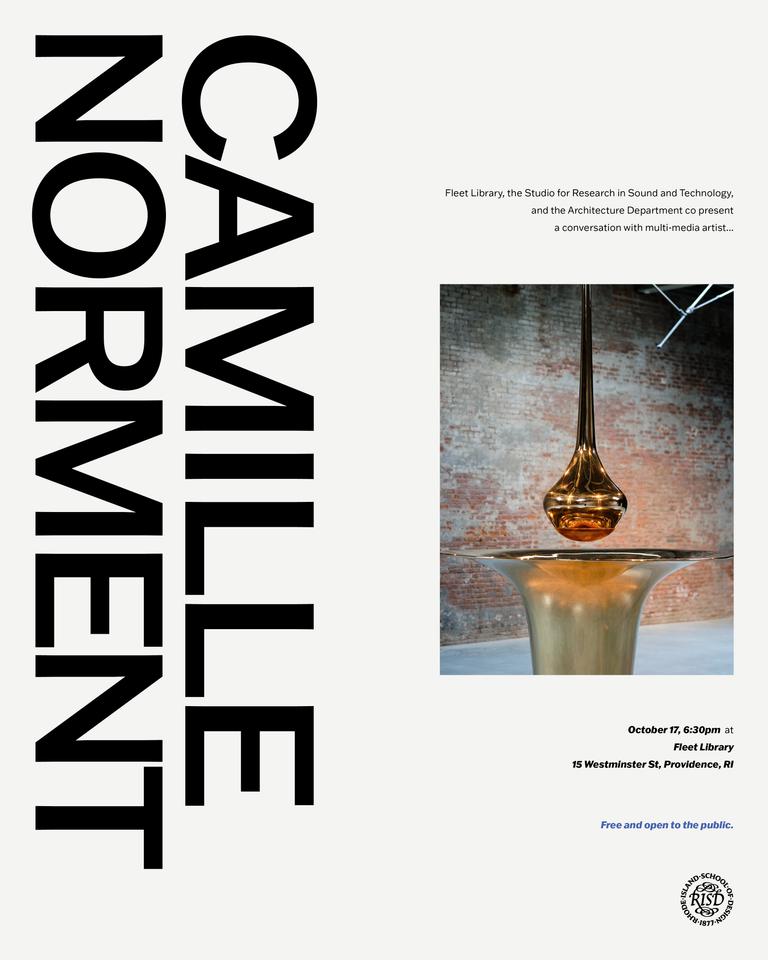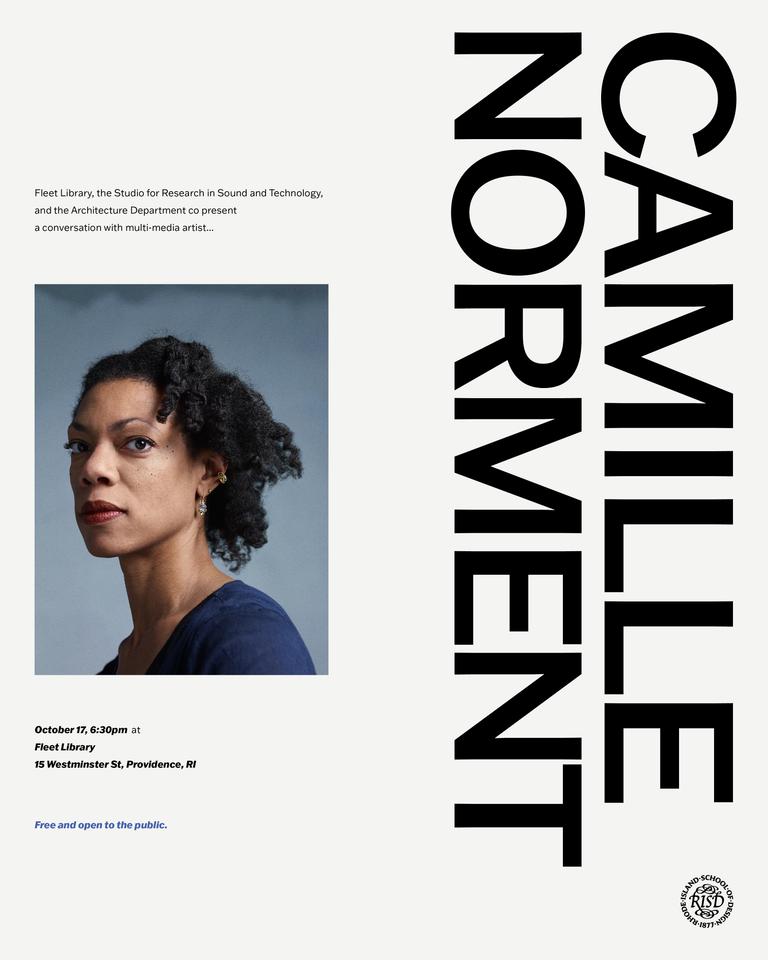News & Events
Sited Sound: Open listening sessions!
January 16, 2026

Thinking about SOUND as your major?
Come listen.
First-year students are welcome to drop into
open class sessions of:
SITED SOUND
COMPOSITION & PUBLIC SPACE
to observe and listen as
students create site-specific works
across the RISD campus
using the IKO 3D loudspeaker.
FRIDAY JAN. 16
Fleet Library
6 - 7:30 pm
THURSDAY JAN. 22
RISD Museum, Grand Gallery
4 - 7 pm
FRIDAY JAN. 23
RISD Auditorium 132
4 - 5:30 pm
6:15 - 8 pm
THURSDAY JAN. 29
20 Washington Place, Auditorium 143
4 - 5:30 pm
6:15 - 8 pm
THURSDAY FEB. 5
20 Washington Place, Auditorium 143
4 - 5:30 pm
6:15 - 8 pm
Come listen.
First-year students are welcome to drop into
open class sessions of:
SITED SOUND
COMPOSITION & PUBLIC SPACE
to observe and listen as
students create site-specific works
across the RISD campus
using the IKO 3D loudspeaker.
FRIDAY JAN. 16
Fleet Library
6 - 7:30 pm
THURSDAY JAN. 22
RISD Museum, Grand Gallery
4 - 7 pm
FRIDAY JAN. 23
RISD Auditorium 132
4 - 5:30 pm
6:15 - 8 pm
THURSDAY JAN. 29
20 Washington Place, Auditorium 143
4 - 5:30 pm
6:15 - 8 pm
THURSDAY FEB. 5
20 Washington Place, Auditorium 143
4 - 5:30 pm
6:15 - 8 pm
RISD Sound: Wintersession courses announced!
November 10, 2025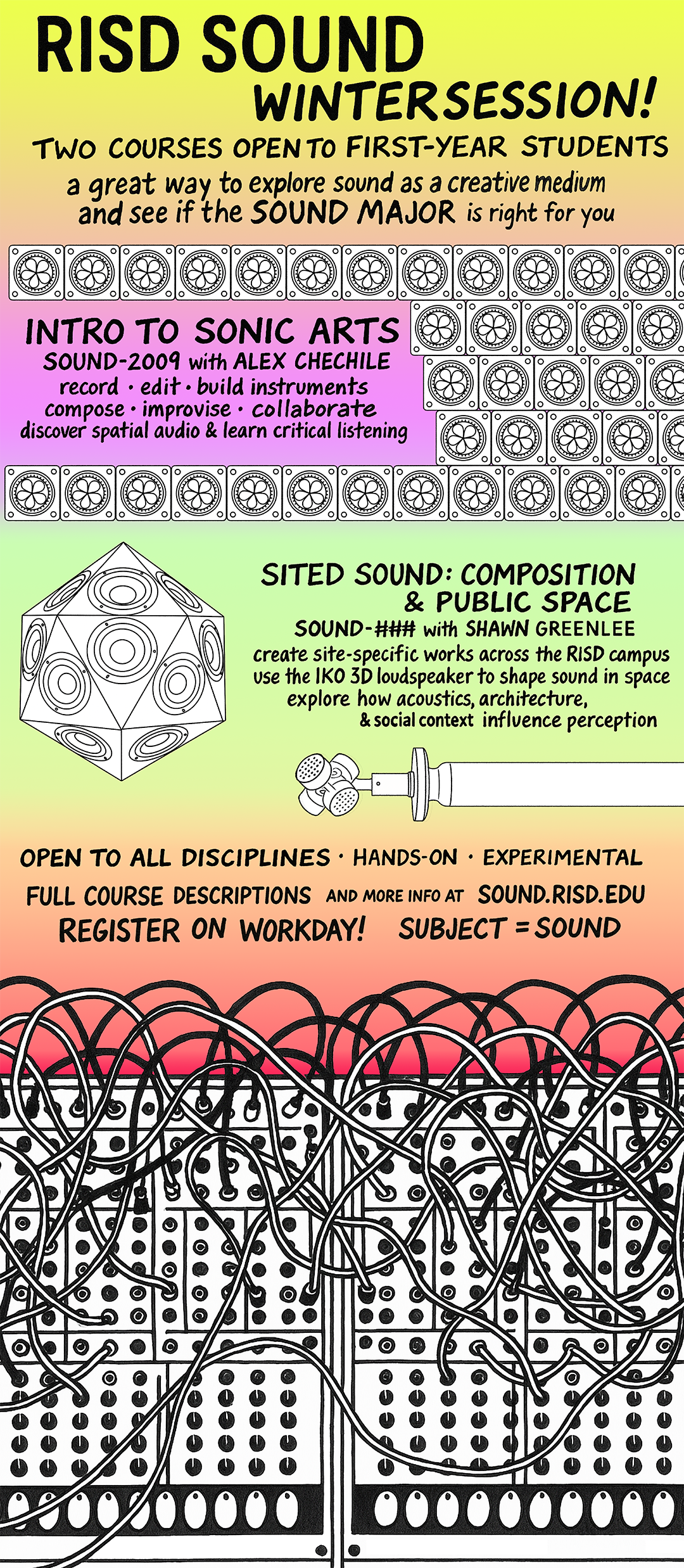
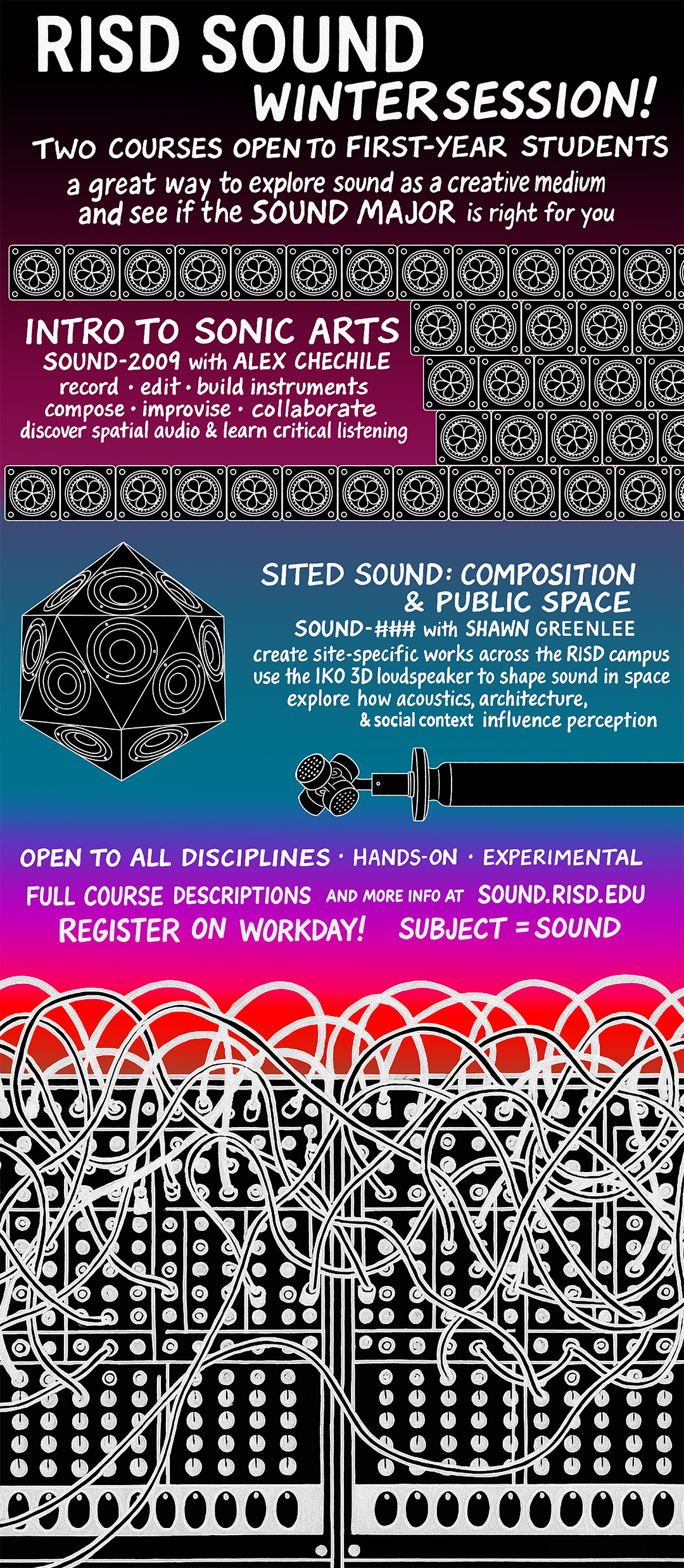
Course descriptions here ︎︎︎
RISD students, register via Workday,
registration begins November 10,
SUBJECT = SOUND
Intro to Sonic Arts = SOUND - 2009
Sited Sound = SOUND - 2511
RISD Sound presents: Charmaine Lee, Aliya Ultan, WGS Johnson
November 7, 2025November 7, 2025 at
Machines with Magnets ︎︎︎
Advance tickets ︎︎︎
Doors at 8pm
Music starts at 9pm
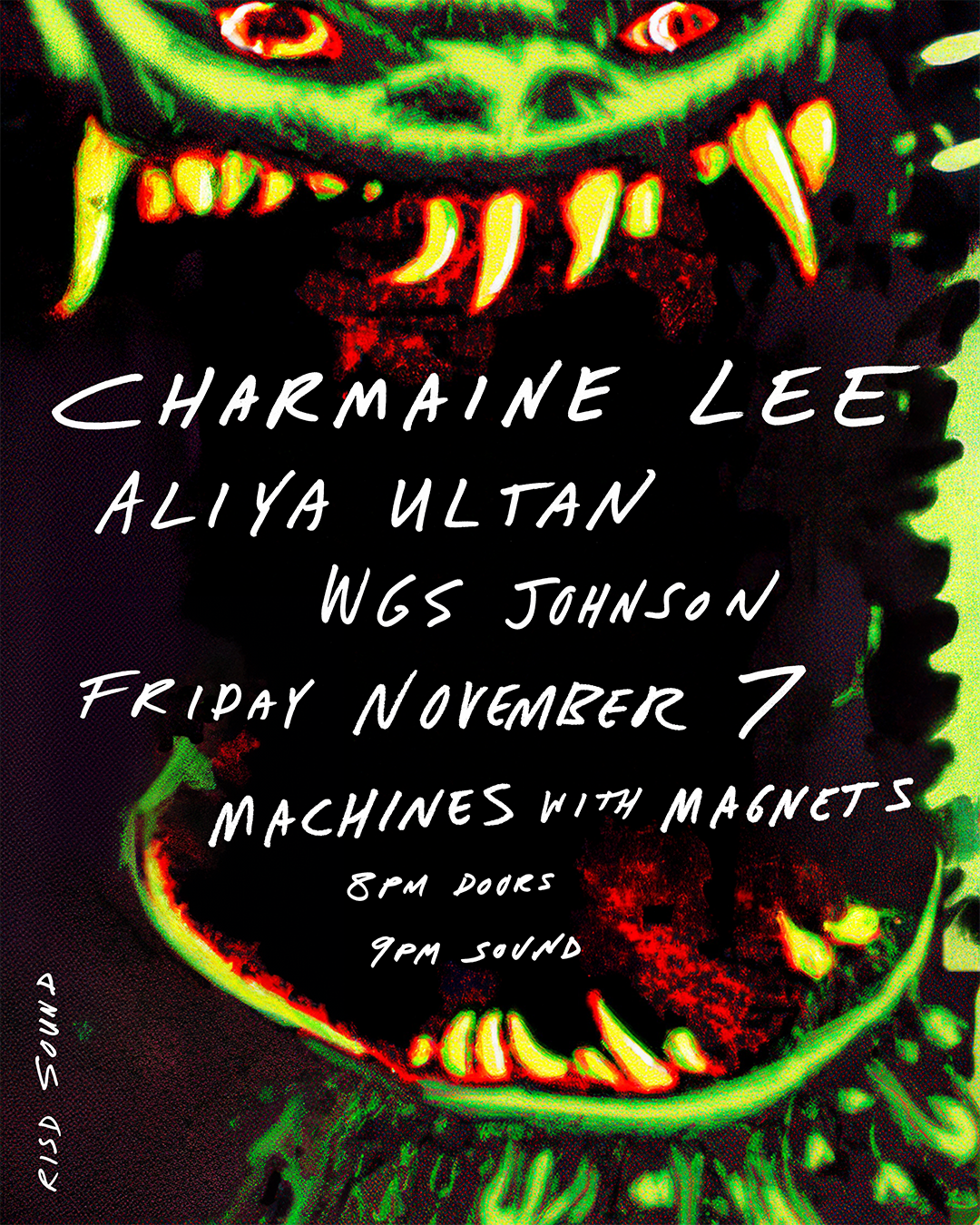


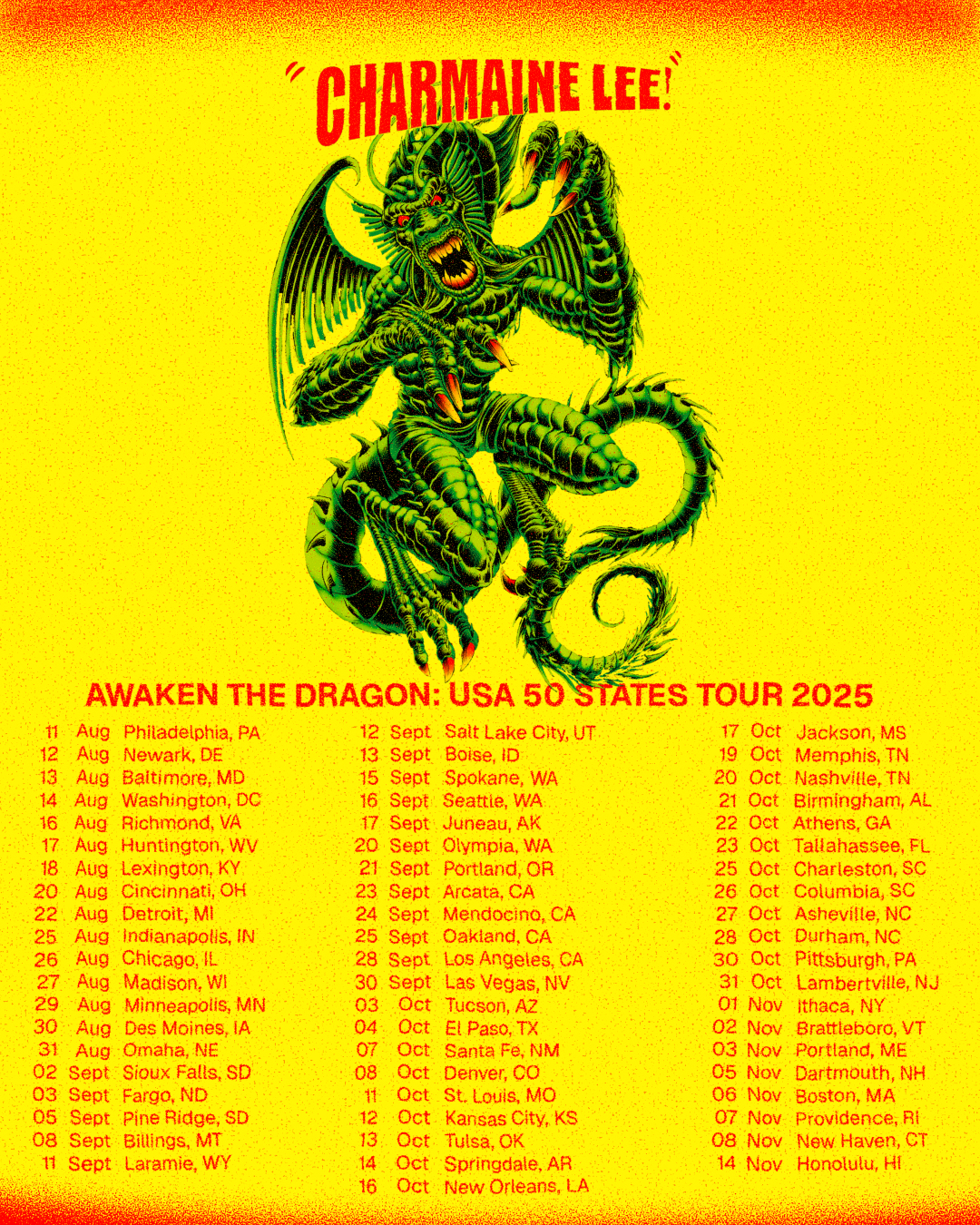
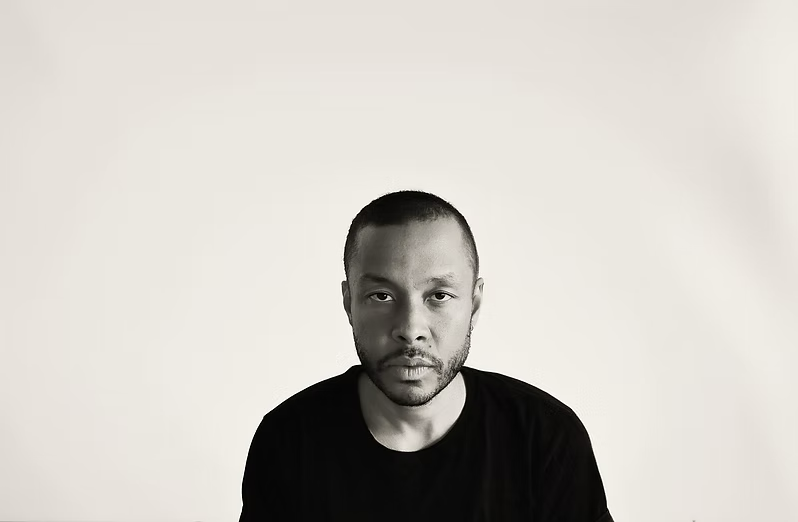
Bios and links:
Charmaine Lee is a New York-based vocalist and electronics artist whose work explores the extremes of presence, intimacy, and noise. Known for her fierce improvisational approach and use of extended vocal techniques, she has collaborated with artists including Ikue Mori, Conrad Tao, and the JACK Quartet. Her solo sets use feedback, vocal fragments, and real-time processing to create live compositions that are as fragile as they are ferocious.
instagram.com/charmainelee
charmainelee.com
kourecords.com
Aliya Ultan — the Nocturnal Cellist — is a composer-performer based in Saugerties, New York. Raised in motion, she turned to music as a survival instinct, and never stopped moving. Her cello becomes a voice of its own: orchestral and grungy, seductive and unhinged — a medium of myth, memory, and pure sensation. Aliya’s work spans puppetry, circus, and experimental theatre, regularly appearing on Broadway in Hadestown and on the road as a soloist or collaborator with Poncili Creación (Puerto Rico), Heart of the Beast (Mpls, MN), and Yoshiko Chuma’s School of Hardknocks (NYC). As an improviser, Aliya is found at the cross section of all things working with legendary creatives such as John Lurie of the Lounge Lizards, Douglas Ewart of the Art Ensemble of Chicago, Aaron Dilloway of Wolf Eyes, and composer-performer Tyshawn Sorey to name a few. Her latest album ‘Witch Hunt’ explores herbal medicine, myth, and psychosomatic frequency zones through layered celloscapes and field recordings.
instagram.com/nocturnal_cellist
aliyaultan.bandcamp.com
WGS Johnson is a multimedia artist and composer from New York City. Themes from his past work include black digital memory, phantom archives and the latent poetics of audio engineer speak. He is the recipient of the Jerome Foundation Fellowship for Sound Art and Composition and the McKnight Foundation’s Fellowship for Musicians. His commercial work includes licensed sound and original composition for Acura, GAP, Beats Electronics, HBO and vocal contributions to Grammy-winning best electronic album Skin. Live performances by Johnson have been commissioned by Lincoln Center, the Kitchen, 92Y and Mass MoCA. He is currently a doctoral candidate at Brown University in Music and Multimedia Composition.
williamgordonjohnson.com
RISD Sound presents: Eric Wong
October 23 & 24, 2025October 23, 8pm - Performance w/ Marie Carroll, Asher Tuil, Mem1
Piccolo, 819 Westminster St., Providence ︎︎︎
October 24, 5pm - Artist talk
RISD SRST, 15 Westminster St., Mezzanine M11
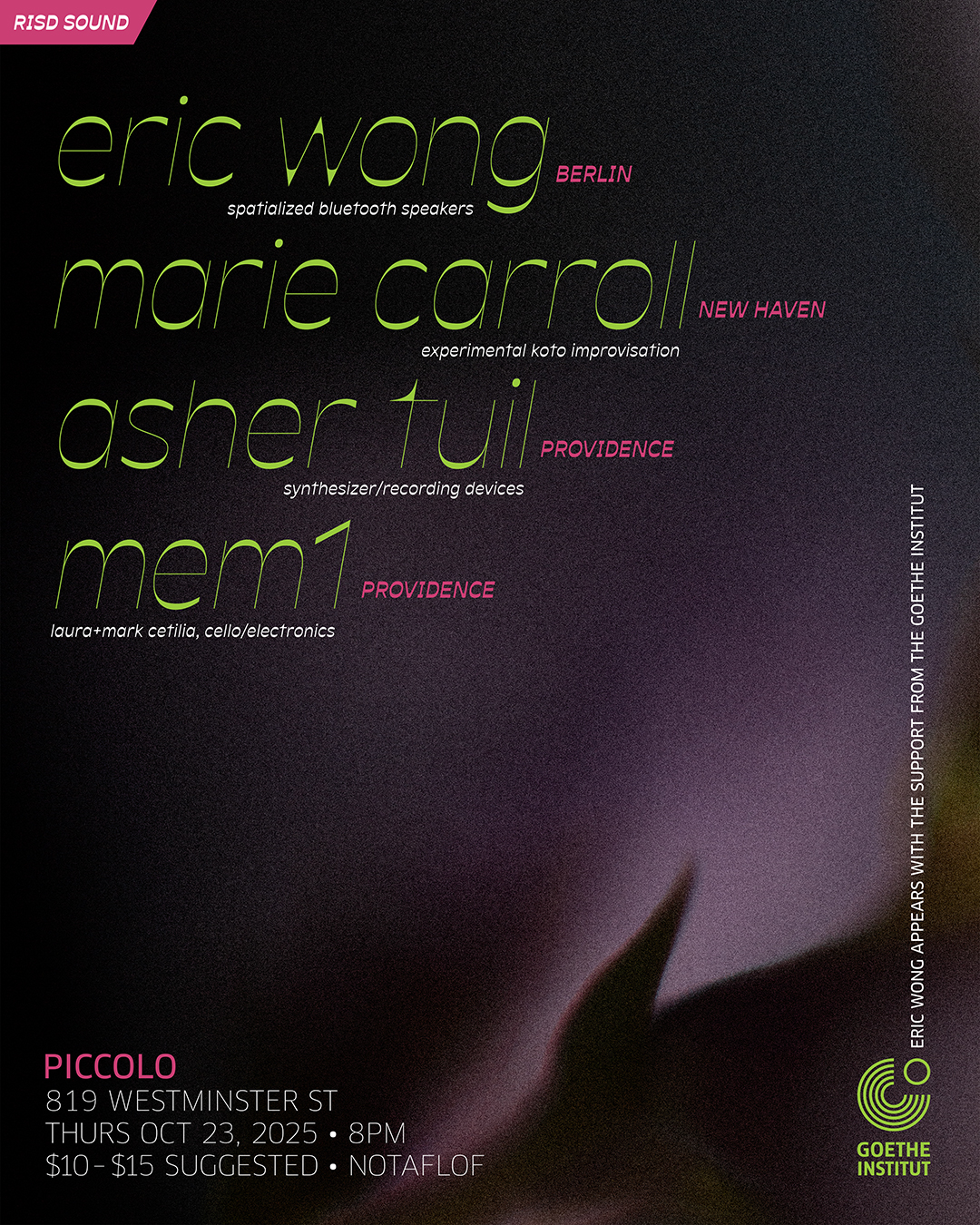
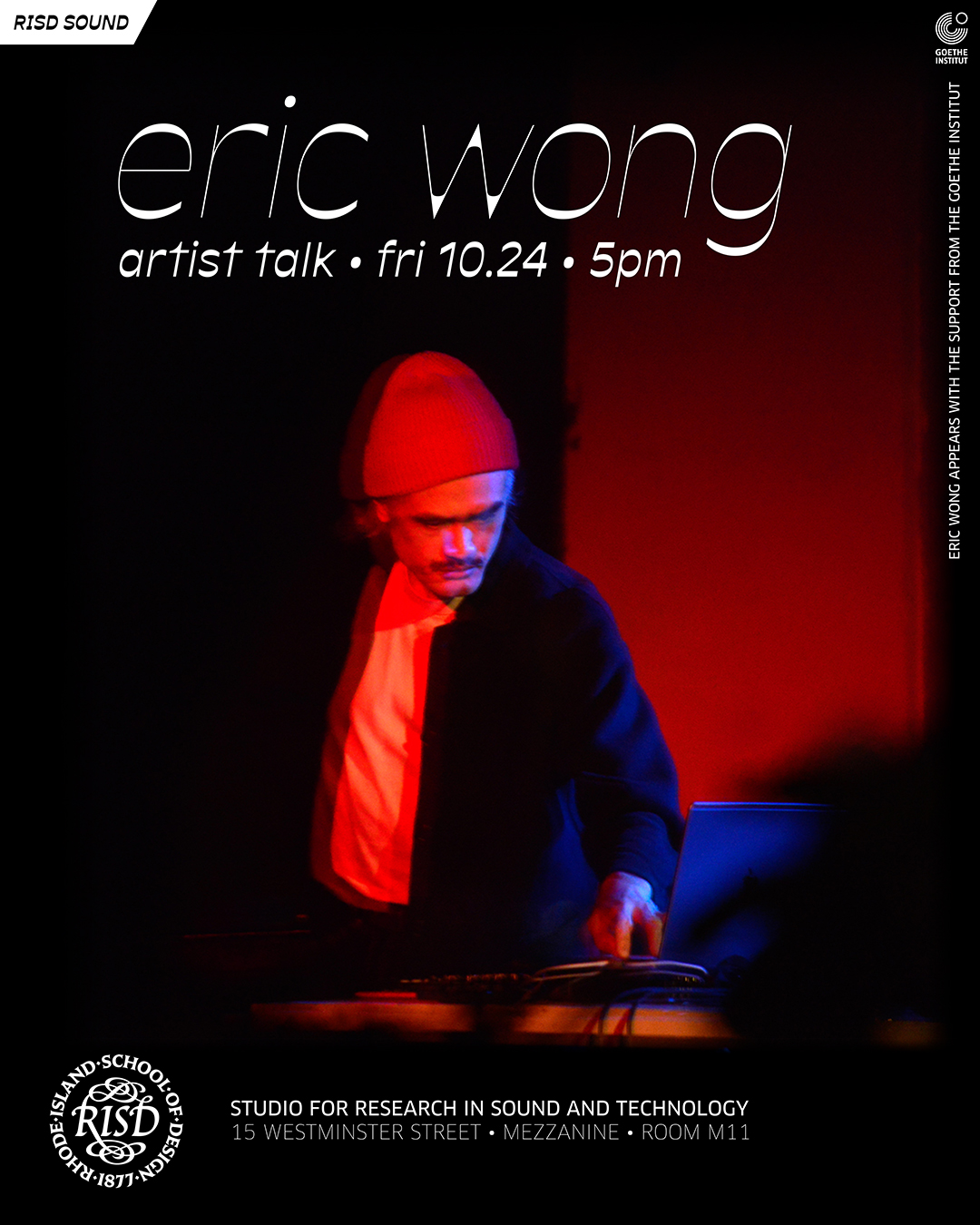
Eric Wong appears with support from the Goethe Institut
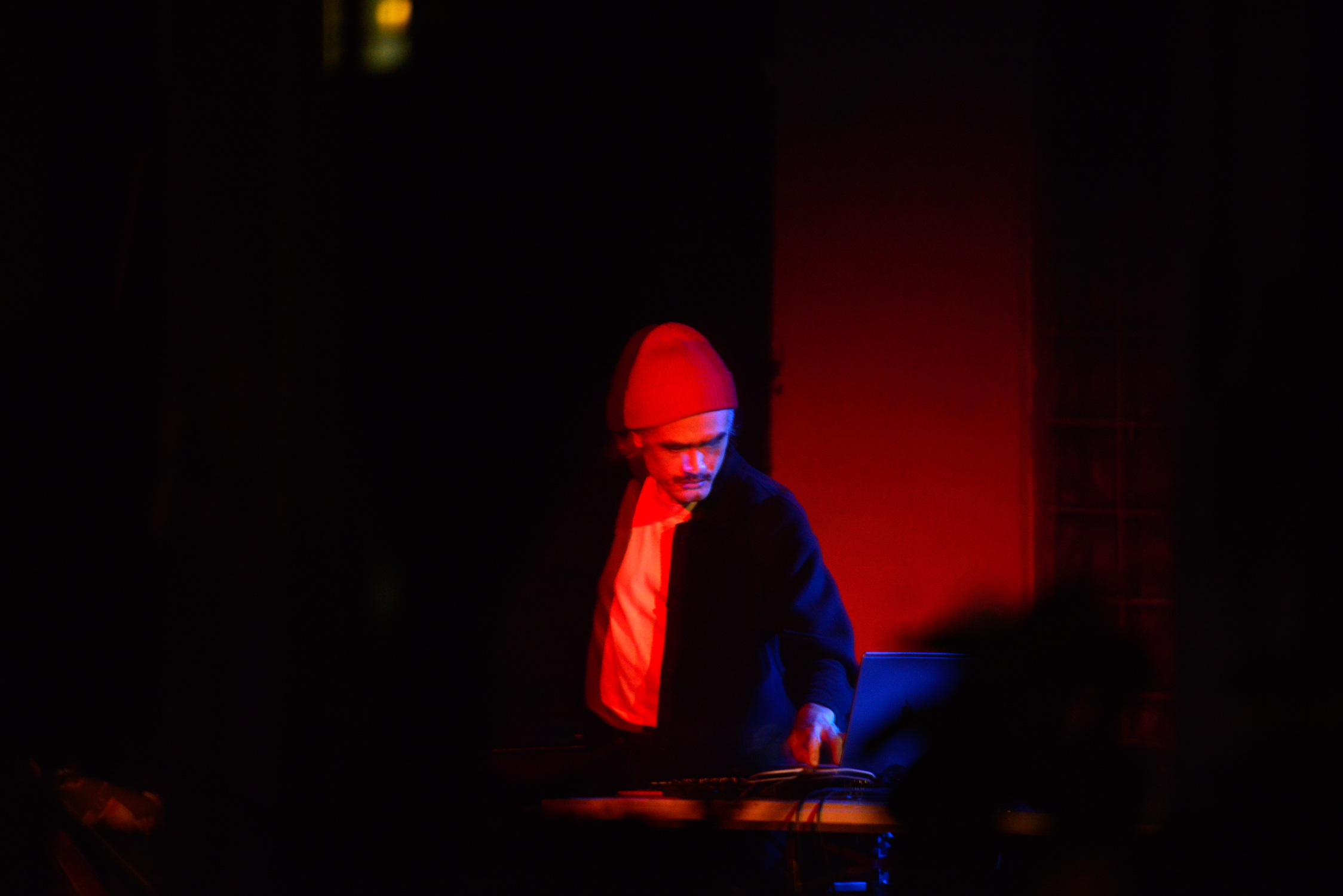
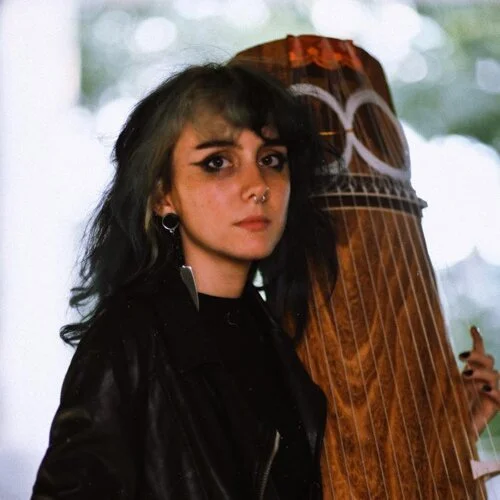
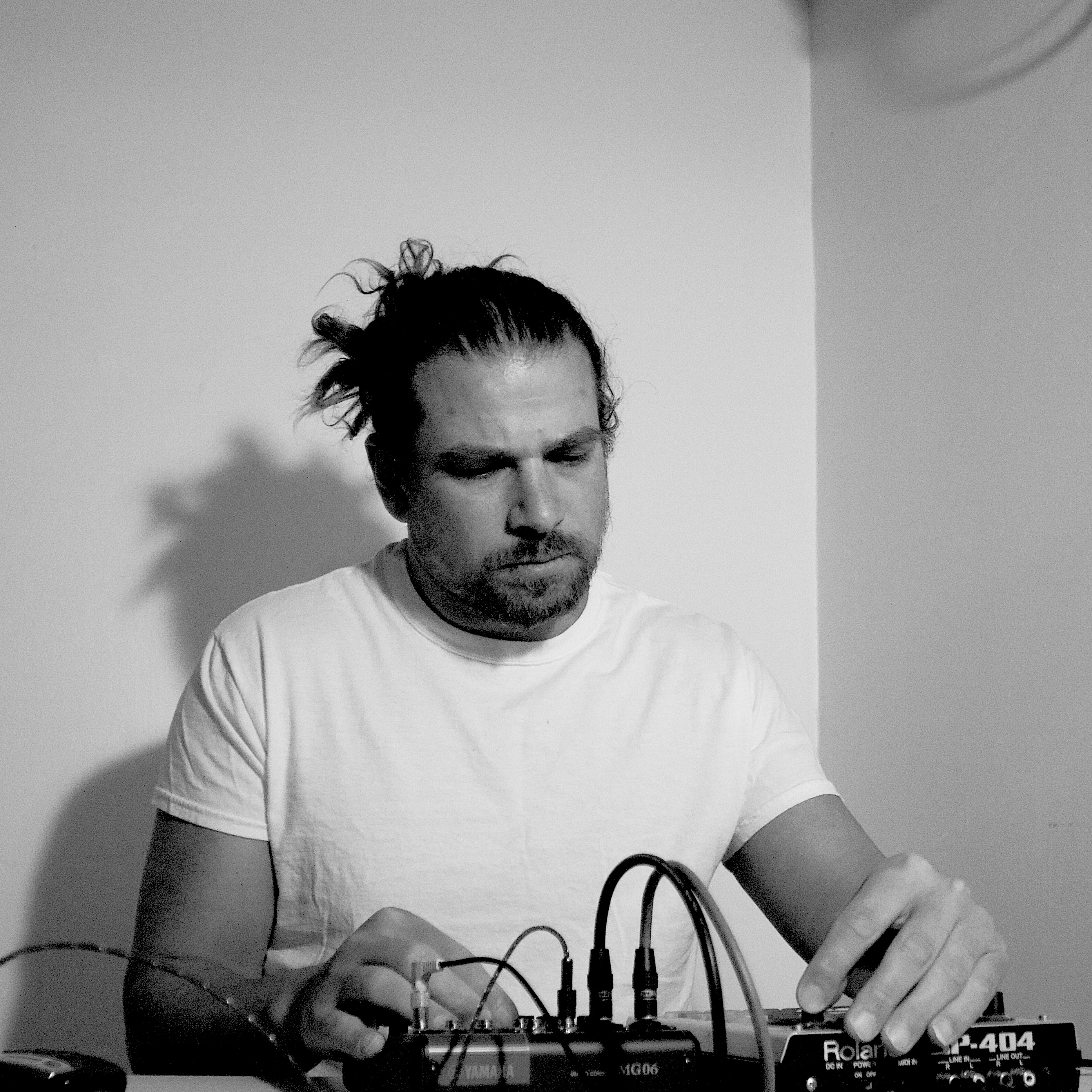
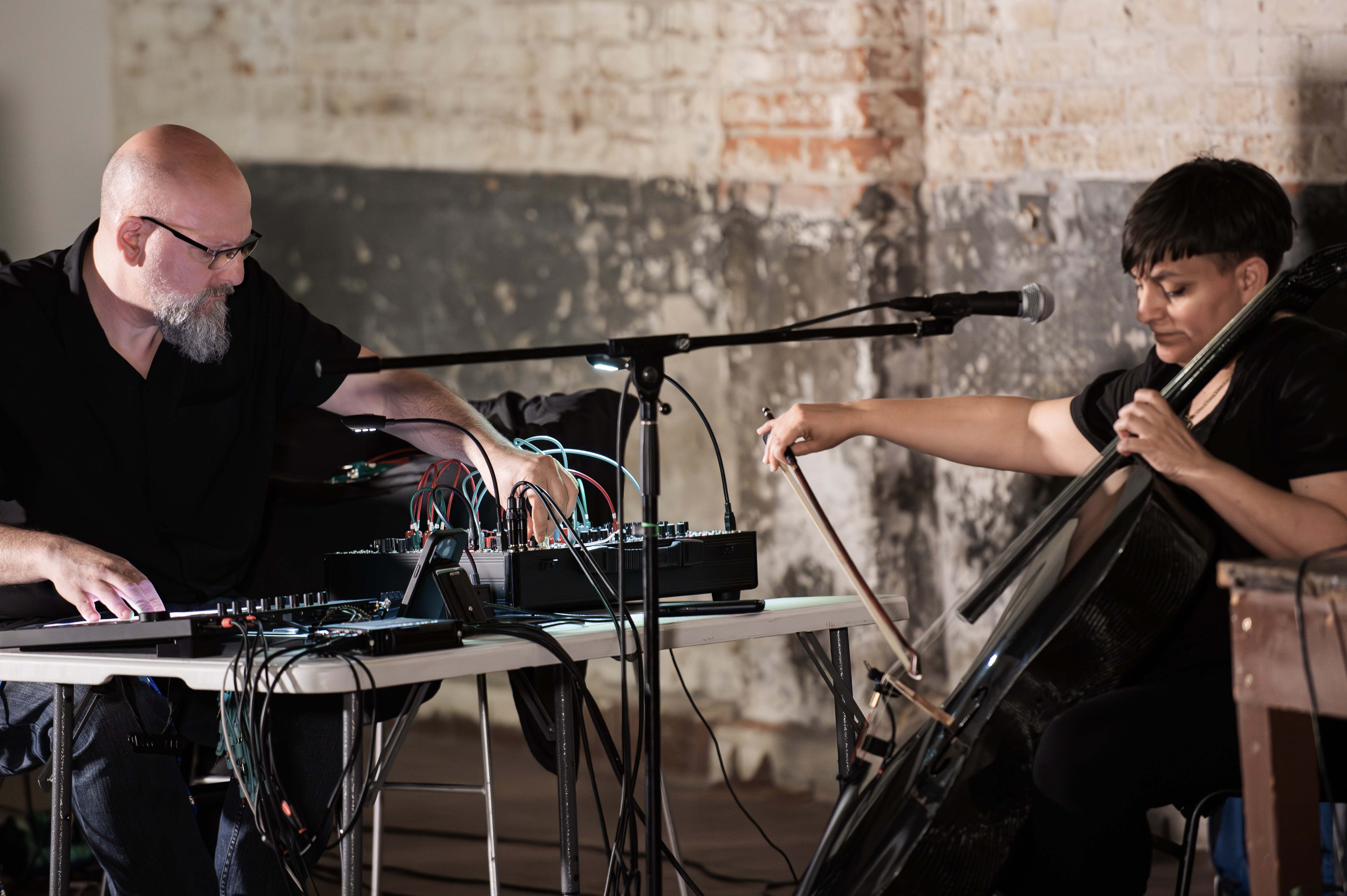
Bios and links:
Eric Wong (b.1981 in Minneapolis, MN) is a Berlin-based musician and sound artist whose work involves auditory perception and the exploration of human relationships with sonic environments. He often incorporates spatialized sound and reduced expressions in his work, focusing on fewer gestures instead of constructing linear or non-linear sonic narratives.
Wong has performed at venues, series, and festivals including Volksbühne (Berlin), Hebbel am Ufer (Berlin), Cafe OTO (London), Twenty Alpha (Hong Kong), KM28 (Berlin), Ftarri (Tokyo), 411 Kent Avenue (Brooklyn), ausland (Berlin), Eroteme (Mnachester), Record Shop (Brooklyn), Q-O2 (Brussels), Free Music Lessons (Leeds), PAS (Berlin), Richten 25 (Berlin), Les 26 Chaises (Paris), OTOOTO (Tokyo), Ting Shuo Hear Say (Tainan), CuteLab (Brooklyn), Moozak (Vienna), Hošek Contemporary (Berlin), Labor Sonor (Berlin), Les 26 Chaises (Paris), Freespace Noise Fest (Hong Kong), Cynetart (Dresden), Internationales Klangkunstfest (Berlin), Blaues Rauschen (Herne), Soundance Festival (Berlin), Festival Experimentelle Musik (Munich), and Sound Forms (Hong Kong).
He has released music on labels Edition Wandelweiser, Creative Sources, Inexhaustible Editions, Full Body Massage Records, Lona Records, Sello Postal, Vintage Vinyl HK, Party Perfect!!!, Aloe Records, Ftarri, and Infant Tree.
eric-wong.net | instagram.com/ericszehonwong
Marie Carroll is an American composer-improviser, electroacoustic musician, and koto player. Her work is influenced by natural phenomena and explores themes of liminality and transience. She enjoys using analog synthesizers and effects units.
mariecarroll.org | instagram.com/marie.wav
Asher Tuil is an artist living and working in Wanskuck, Providence, RI. for over twenty years asher has been working with recorded sound as his primary medium. Location recordings, electronic synthesis, found sounds and a variety of other sources are used in his compositions to create a rich and dynamically varied body of work which examines these materials extensively.
ashertuil.bandcamp.com | instagram.com/ashertuil
Mem1 seamlessly blends the sounds of cello and electronics to create a limitless palette of sonic possibilities. In their improvisation-based performances, Mark and Laura Cetilia’s uniquely subtle approach to extended cello technique and realtime modular synthesis patching results in the creation of a single voice rather than a duet between two individuals. Their music moves beyond melody, lyricism and traditional structural confines, revealing an organic evolution of sound that has been called “a perfect blend of harmony and cacophony” (Forced Exposure).
mem1.bandcamp.com | instagram.com/lcetilia | instagram.com/m.cetilia
RISD students perform I of IV at FRMoCA
May 5, 2025Alex Chechile’s class “A Hands-On History of Electronic Music” performed Pauline Oliveros’ I of IV, a seminal 1966 electronic composition. Recorded at the University of Toronto, I of IV was Oliveros’ first commercially available piece of electronic music, composed live using sine tone generators and reel-to-reel tape machines. The piece generates audible sound from combinations of inaudible frequencies.
Performers: Tomo Borromeo, Nathaniel Campos, AY Cheng, Alexandra Heffner, Siya Kumar, Alexander Pink, Crystal Ren, Ian Wang, Elise Williams, Hui-Chun Yang, Jinghan Zhang, and Liqing Zhang, using original-era tube signal generators and tape machines.
Performed for educational purposes, while free and open to the public with respect and gratitude to Pauline Oliveros’ legacy and in alignment with the Center for Deep Listening.
Residual Noise Festival April 3-5
March 27, 2025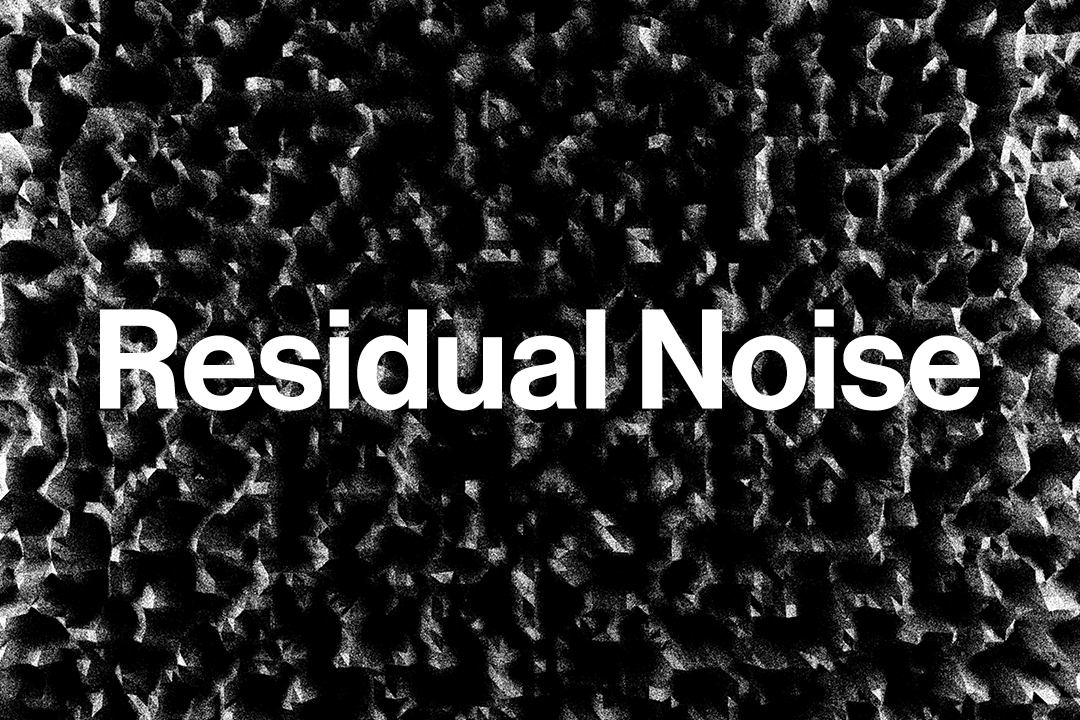
April 3 - 5, 2005
Locations at RISD and Brown University
This event is free, but registration for tickets is required. Please see the following website for the full schedule, list of artists/presenters, and to reserve tickets:
https://arts.brown.edu/programs/ignite/campus-projects/residual-noise︎︎︎
---
Residual Noise is a three-day festival highlighting a wide range of contemporary sonic practices by prominent artists and scholars from Brown, RISD, and beyond.
Through spatial audio concerts, installations, and a conference, this three-day festival highlights a wide range of work that takes place in sound: noise, voice, audio narrative, field recording, and related sonic practices. Spotlighting the ambisonic cube formation (a unique venue designed for spatial audio presentations) in Brown’s new Lindemann Performing Arts Center’s Main Hall, the events will feature works by Brown and RISD faculty and students, along with a number of prominent guest artists in the field. Residual Noise is a collaboration between Brown and the Studio for Research in Sound and Technology (SRST) at RISD with events occurring on both campuses.
---
SRST-based events include:
April 3
SRST Spatial Audio Concert
20 Washington Place, Auditorium
7pm
A concert by faculty and researchers affiliated with RISD’s Studio for Research in Sound and Technology (SRST), including Maralie Armstrong-Rial, Mark Cetilia, Alex Chechile, Michael Demps, Shawn Greenlee, and Will Johnson. The program will feature works utilizing the IKO 3D audio speaker, a custom Wave Field Synthesis array, and 10.2 channel surround.
April 5
SRST Open Studio
15 Westminster Street, Mezzanine Level
1pm
A demonstration and Q&A session with RISD’s Studio for Research in Sound and Technology (SRST). The presentation will feature SRST’s 25.4 channel ambisonic loudspeaker array and performances by Huichun Yang and Jess Skyleson.
---
Curated by Professor Ed Osborn and Shawn Greenlee & Alex Chechile at the Studio for Research in Sound and Technology (SRST) at RISD. Produced by Brown Arts Institute and SRST. In partnership with the Brown Department of Visual Art, the Brown Department of Music, the John Nicholas Brown Center for Advanced Study, and the Marshall Woods Lectureship Foundation of Fine Arts Fund. Sponsored in part by the Lawton Wehle Fitt '74 Artist in Residence Endowment.
Digital + Media Studios Offer Glimpse of RISD’s Upcoming Sound BFA Program
February 13, 2025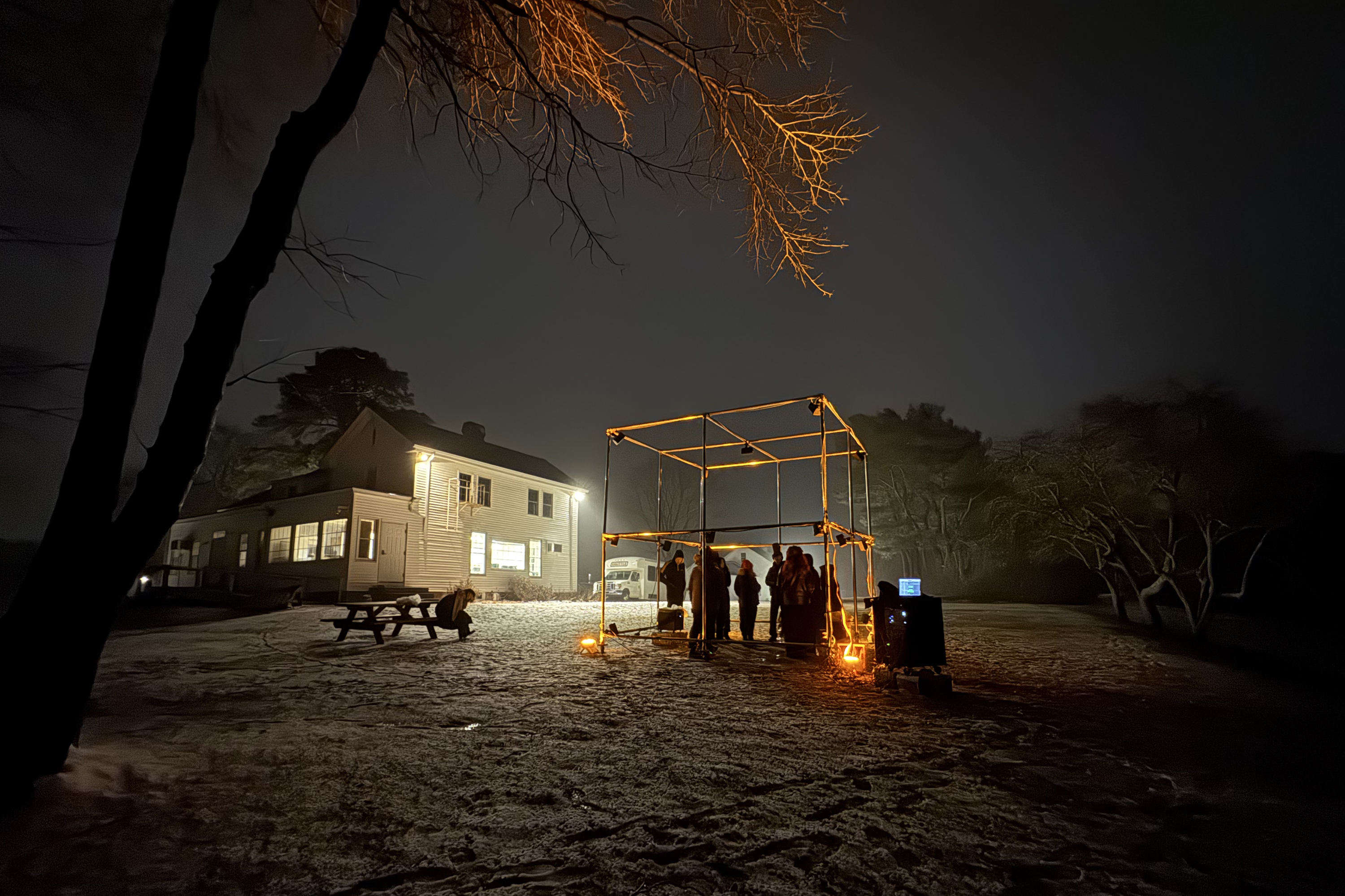
Read the RISD article︎︎︎ featuring Chris Mayes-Wright and Will Johnson’s sound-focused Wintersession courses, which previews what is to come in the new Sound BFA major︎︎︎.
Electrosmith Interviews Alex Chechile on Synth Building Course Modular Synthesis Studio
November 19, 2024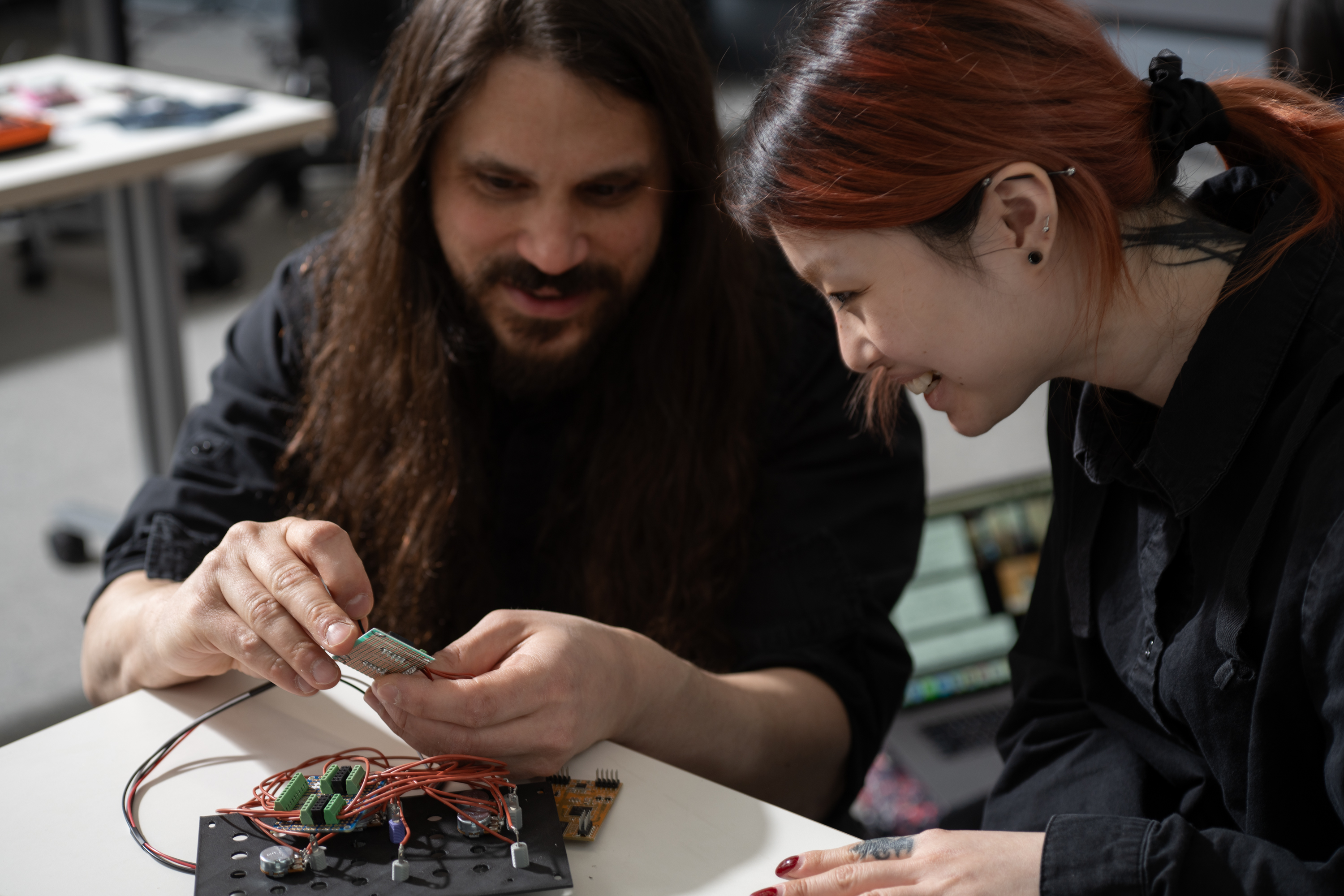
Research Fellow and faculty member Alex Chechile talks with Electrosmith︎︎︎ about the unique synthesizer built in the SRST course Modular Synthesis Studio.
John Chowning Multichannel Concert and Artist Talk
November 12, 2024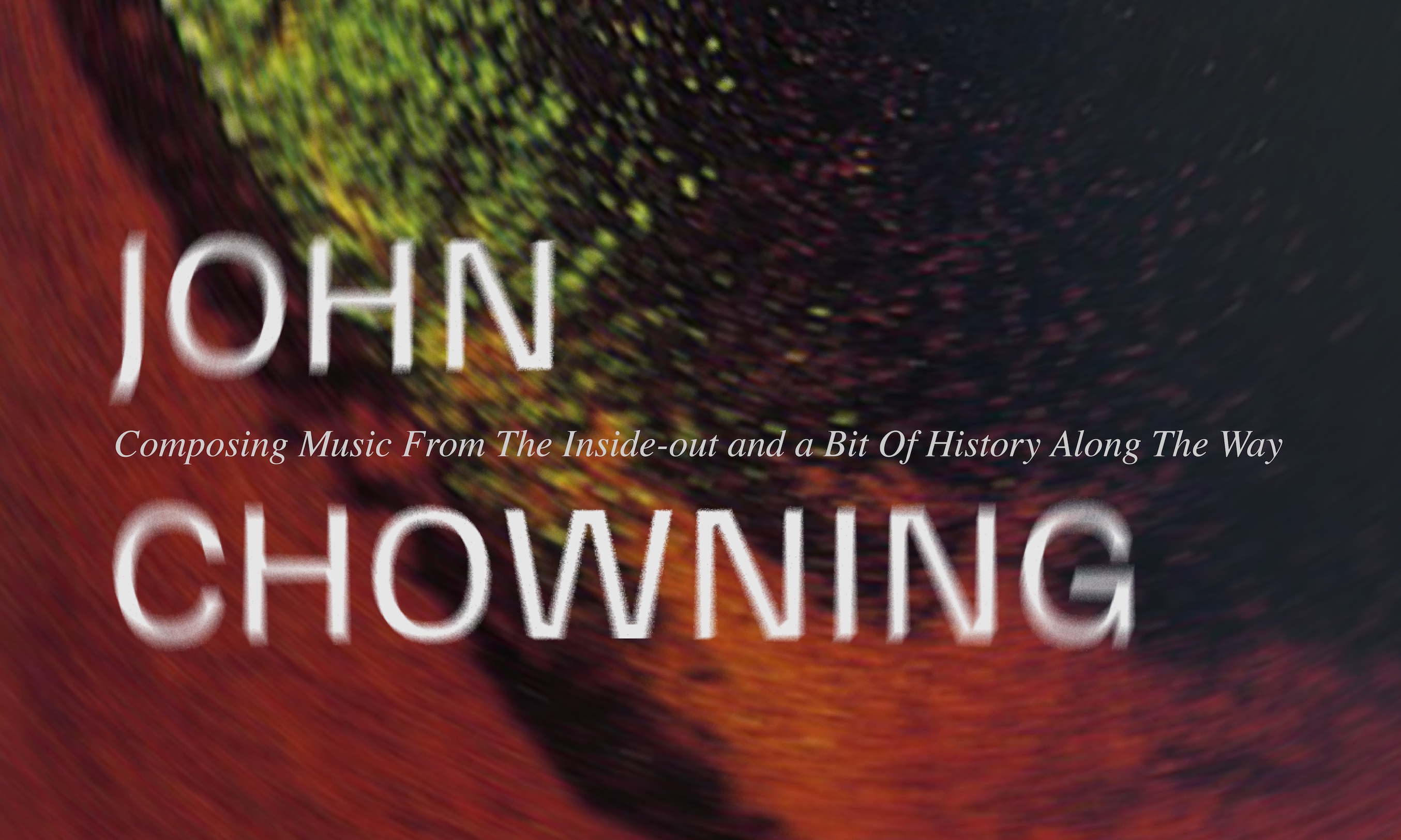
John Chowning
Tuesday, November 12th
20 Washington Place Auditorium
7pm, free and open to the public
SRST welcomes computer music pioneer John Chowning for a multichannel concert and artist talk “Composing Music From The Inside-out and a Bit Of History Along The Way.”
John M. Chowning was born in Salem, New Jersey. Following military service and studies at Wittenberg University, he studied composition in Paris with Nadia Boulanger. In 1964, with the help of Max Mathews of Bell Telephone Laboratories and David Poole of Stanford University, he set up a computer music program using the computer system of Stanford's Artificial Intelligence Laboratory. The same year, he began the research leading to the first generalized sound localization algorithm implemented in a quad format in 1968-69. He received a doctorate in composition from Stanford University in 1966, where he studied with Leland Smith. Chowning discovered the frequency modulation synthesis (FM) algorithm in 1967. This breakthrough in the synthesis of timbres allowed a very simple yet elegant way of creating and controlling time-varying spectra. Inspired by the acoustic and perceptual research of Jean-Claude Risset, over the next six years, he worked toward turning this discovery into a system of musical importance, using it extensively in his compositions. In 1973, Stanford University licensed the FM synthesis patent to Yamaha in Japan, leading to the most successful synthesis engine in the history of electronic musical instruments. He has maintained his relationship with the Center for Computer Research in Music and Acoustics (CCRMA), recently leading an acoustics restoration project of the Chauvet Cave in southern France.
Genelec case study published
April 2, 2024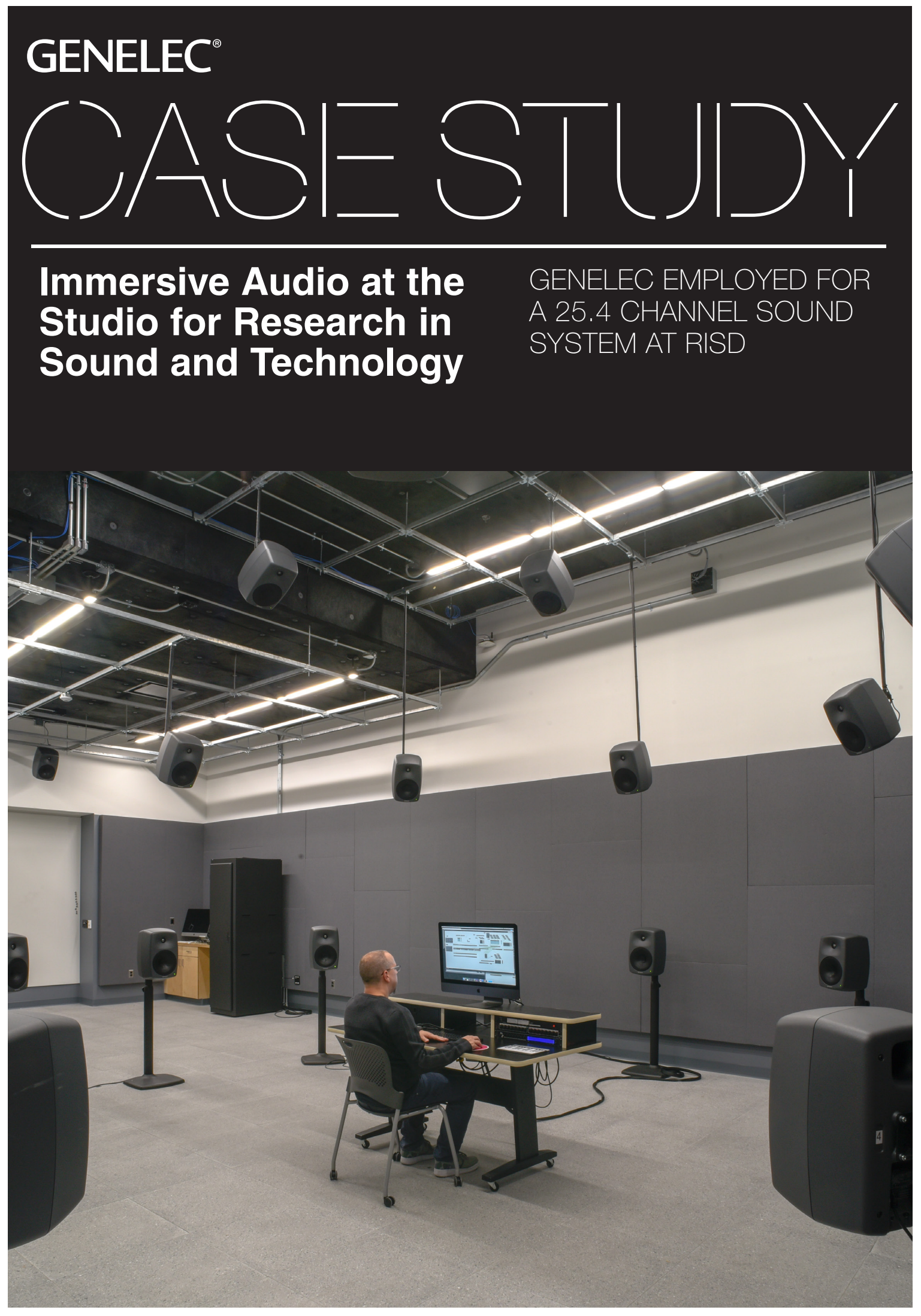
Genelec recently posted a case study about SRST on their website ︎︎︎ . A PDF version is available here ︎︎︎.
Looking toward the future, Greenlee shares, “I think one thing that we’re really excited about, and what this studio is helping us do, is to create a strong community around sound and music at the school. We have students that are really eager to focus their studies on sonic arts and sound design.
Looking toward the future, Greenlee shares, “I think one thing that we’re really excited about, and what this studio is helping us do, is to create a strong community around sound and music at the school. We have students that are really eager to focus their studies on sonic arts and sound design.
Suzanne Thorpe talk and workshop
October 19, 2023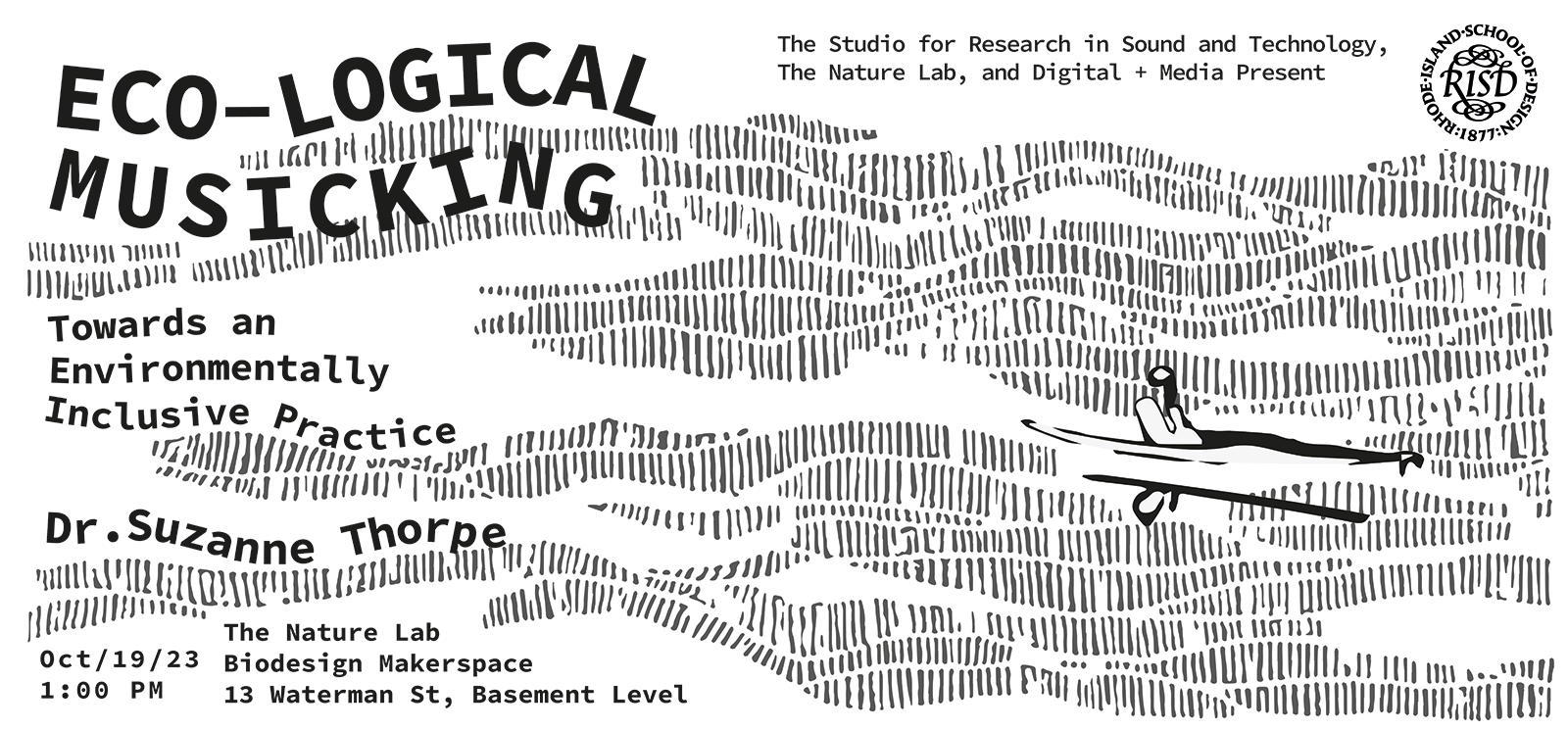
The Studio for Research in Sound and Technology (SRST), The Nature Lab, and Digital + Media Present:
Eco-logical Musicking: Towards an Environmentally Inclusive Practice
Dr. Suzanne Thorpe
Thursday, October 19th
1:00pm
The Nature Lab Biodesign Makerspace
13 Waterman St, Basement Level
Please join Dr. Suzanne Thorpe as she presents Eco-logical Musicking: Towards an Environmentally Inclusive Practice. Eco-logical Musicking is a reflexive critical framework for environmentally situated music composition and sound art that amplifies an ecocentric experience. Thorpe will discuss the eco-philosophies that inform her approach, as well as critical tactics in listening and creative improvisation she adopted to enact these theories. As part of her presentation, she will conduct a workshop where participants will engage with these critical strategies. From this standpoint, we will collectively contemplate the previously unheard or sensed, and how this experience agitates a greater connection to material animation and reconsideration of circulations of power.
Suzanne Thorpe, Ph.D., is an interdisciplinary artist-scholar whose creative research intersects electronic music, feminist and ecological theory. She weaves together critical listening practices with acoustic ecology, improvisation and technology to craft immersive sound engagements and creative research sites that question circulations of power within human and nonhuman systems. As an electroacoustic flutist and sound artist she’s performed and exhibited internationally and has a large discography, with releases on Columbia Records, Beggars Banquet, Geffin, V2 and more. In addition her research has been published in journals and edited volumes. Thorpe has been granted several residencies and awards for her artistry and research, such as the Frog Peak Collective Award for innovative research in technology, a Gold Record from the Recording Industry Association of Americas, as well as grants from Harvestworks Digital Media Foundation, New Music USA, NYSCA and the MAP Fund. Thorpe holds an MFA in Electronic Music & Media from Mills College, a Ph.D. in Integrative Studies from the University of California, San Diego, and is a certified Deep Listening Instructor, having studied in depth with pioneering composer and Deep Listening Founder Pauline Oliveros. Most recently she was a Mellon Fellow at Columbia University, and is currently Assistant Professor of Sound Studies at Manhattan College. She also remains a co-founder and director of TECHNE, a nonprofit arts-education organization dedicated to dismantling social and cultural barriers in technical learning environments.
Serge Modular Tutorials and SRST Sessions launched
October 7, 2023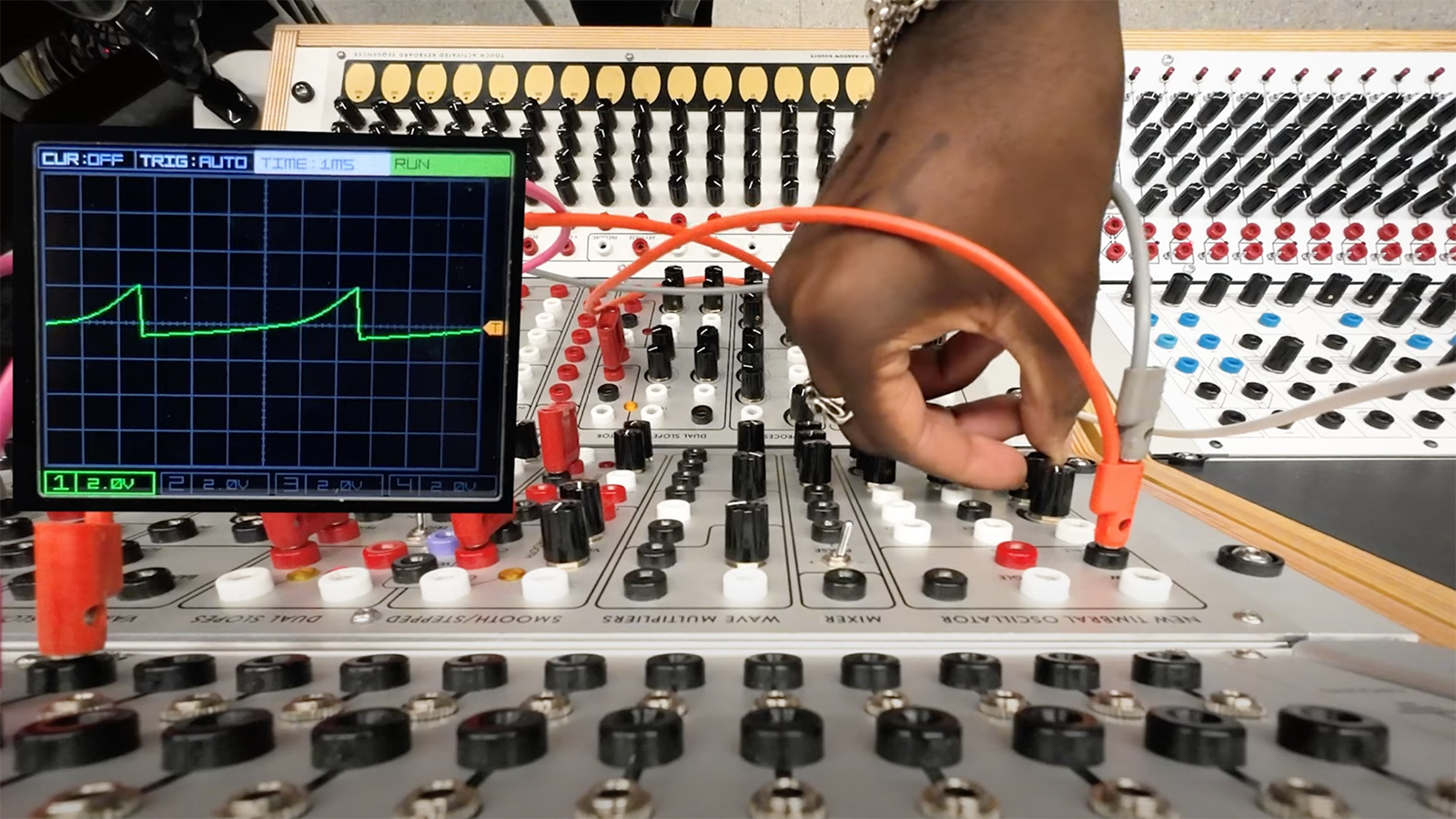
SRST research assistant Femi Shonuga-Fleming ︎︎︎ has just launched two new video series recorded at the studio.
Serge Modular Tutorials are now available on Femi’s YouTube channel ︎︎︎
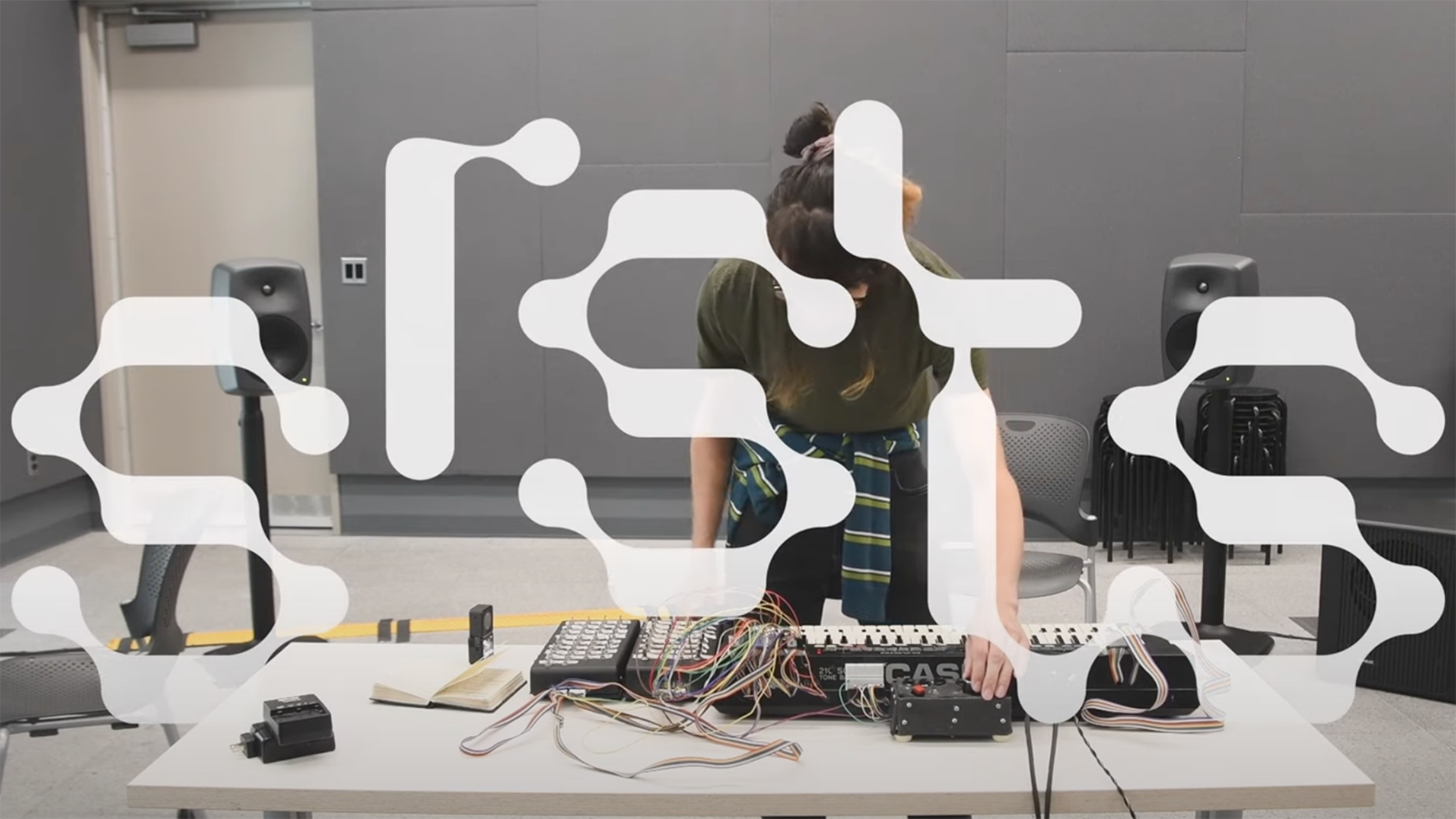
And...
SRST Sessions is a video series highlighting local artists in Providence, RI in an attempt to bridge the gap between music academia at RISD and Brown and the local music scene...
Sessions by Cryptwarbler ︎︎︎ and Daedelus ︎︎︎ available now!
Subscribe at https://www.youtube.com/@SRSTSessions/
SRST Sessions is a video series highlighting local artists in Providence, RI in an attempt to bridge the gap between music academia at RISD and Brown and the local music scene...
Sessions by Cryptwarbler ︎︎︎ and Daedelus ︎︎︎ available now!
Subscribe at https://www.youtube.com/@SRSTSessions/
SRST at Lindemann Performing Arts Center
June 12, 2023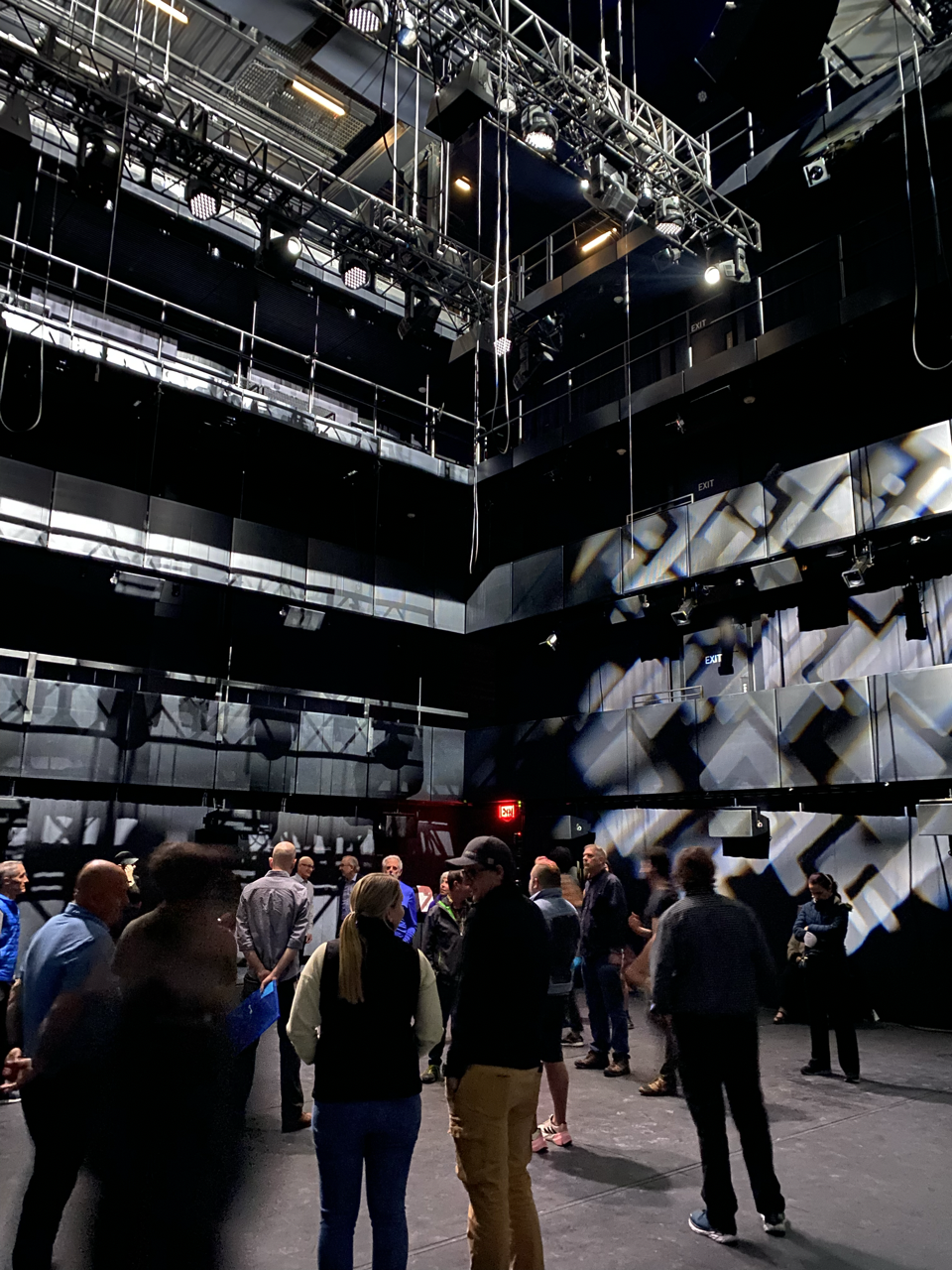
SRST researchers recently participated in the tuning events for Brown University’s new Lindemann Performing Arts Center ︎︎︎ in its ambisonic cube configuration. The cube features a 41.4 channel loudspeaker array, allowing sound to be positioned and moved within a virtual hemisphere enveloping the audience. Program notes for the immersive sound exhibition and concert here ︎︎︎.
Programming Sound Concert
May 25, 2023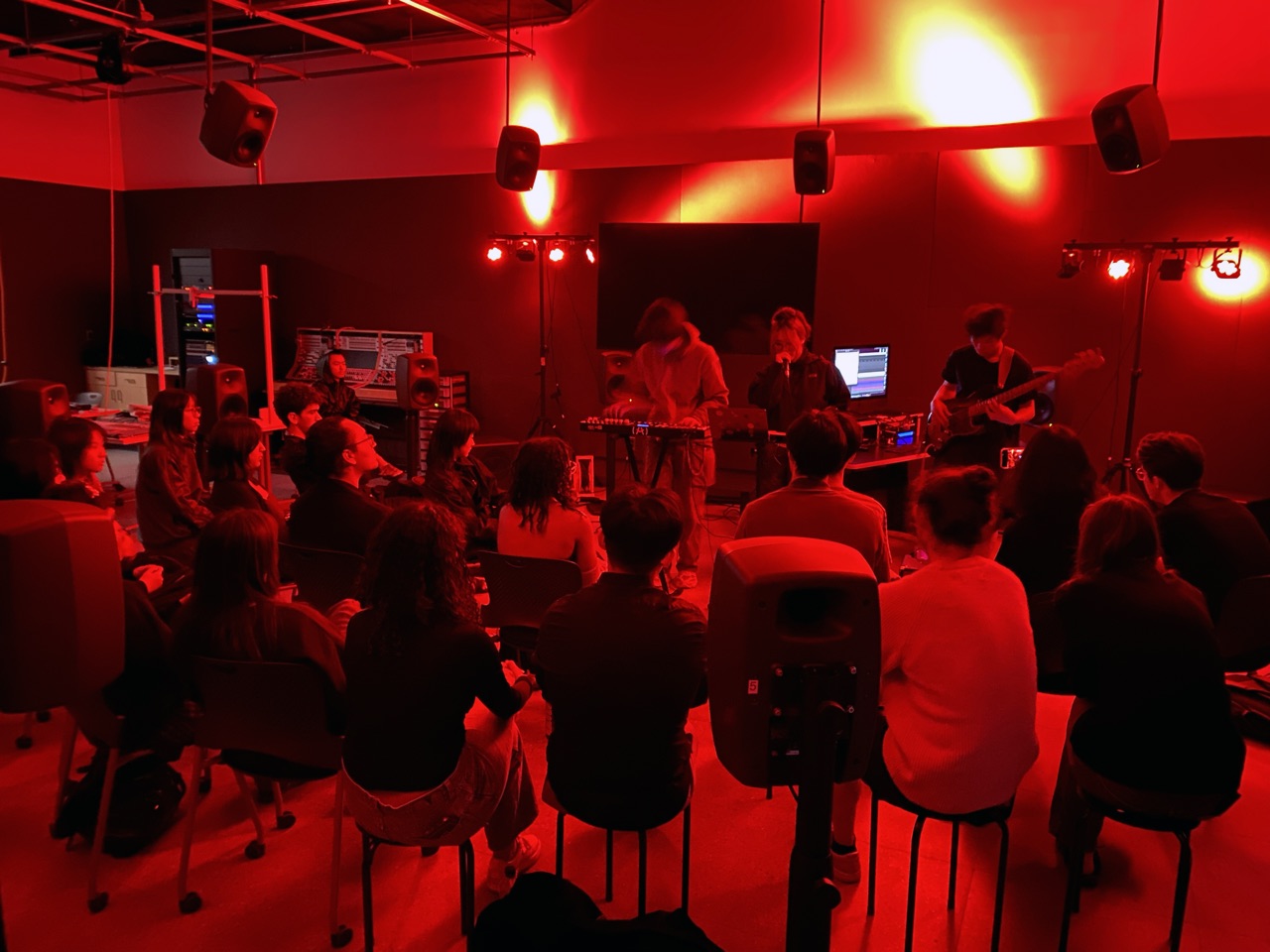
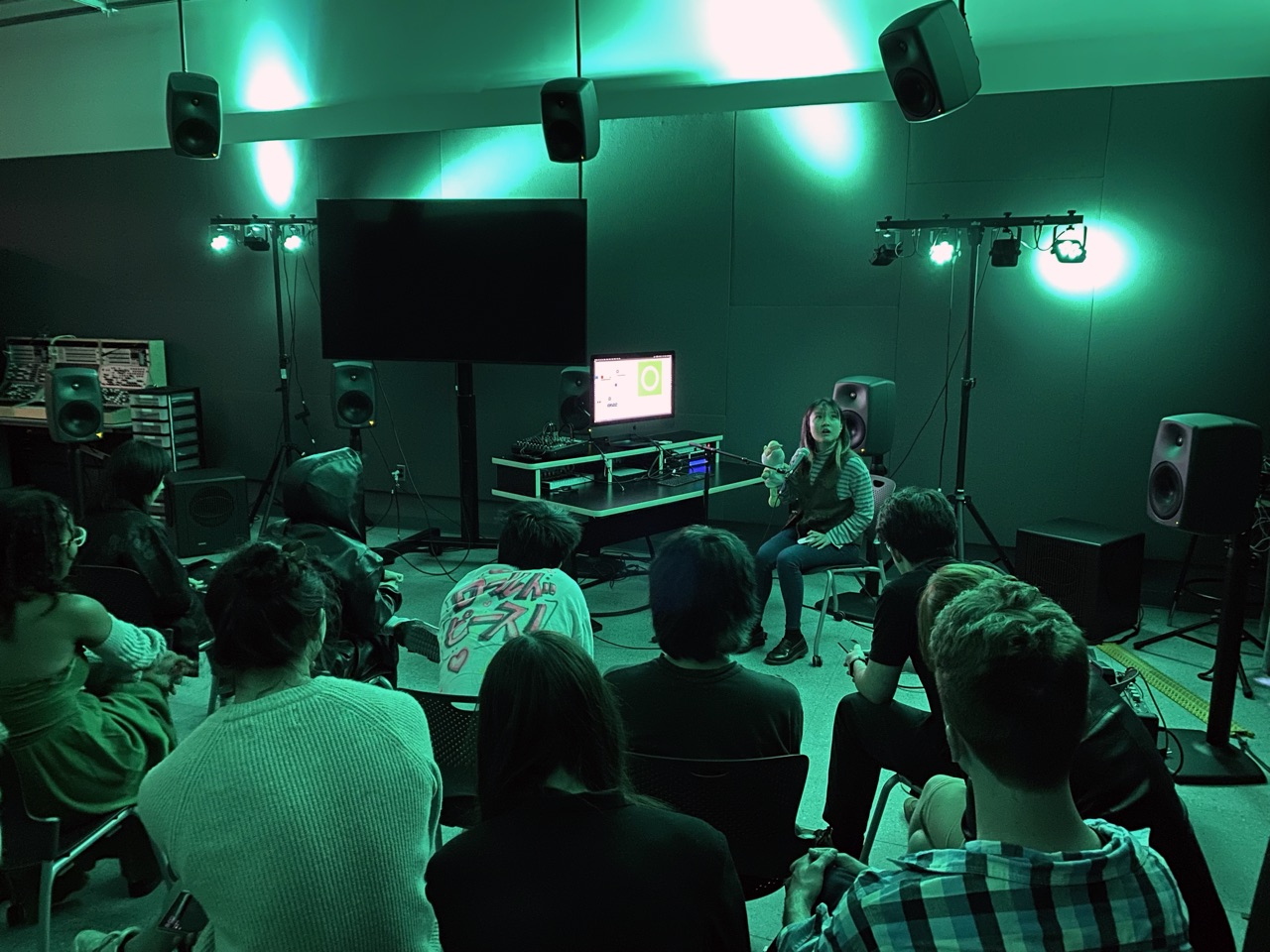
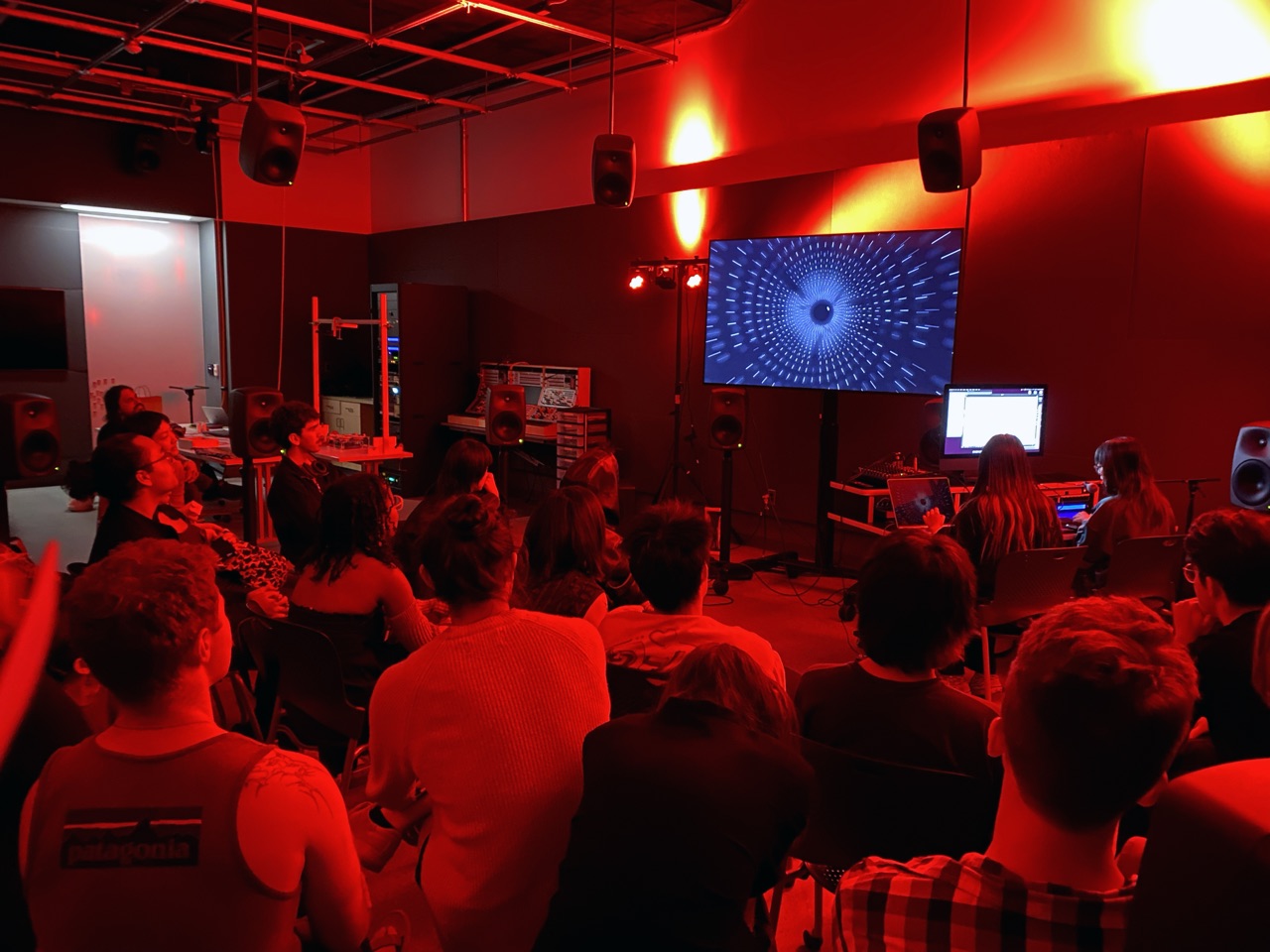
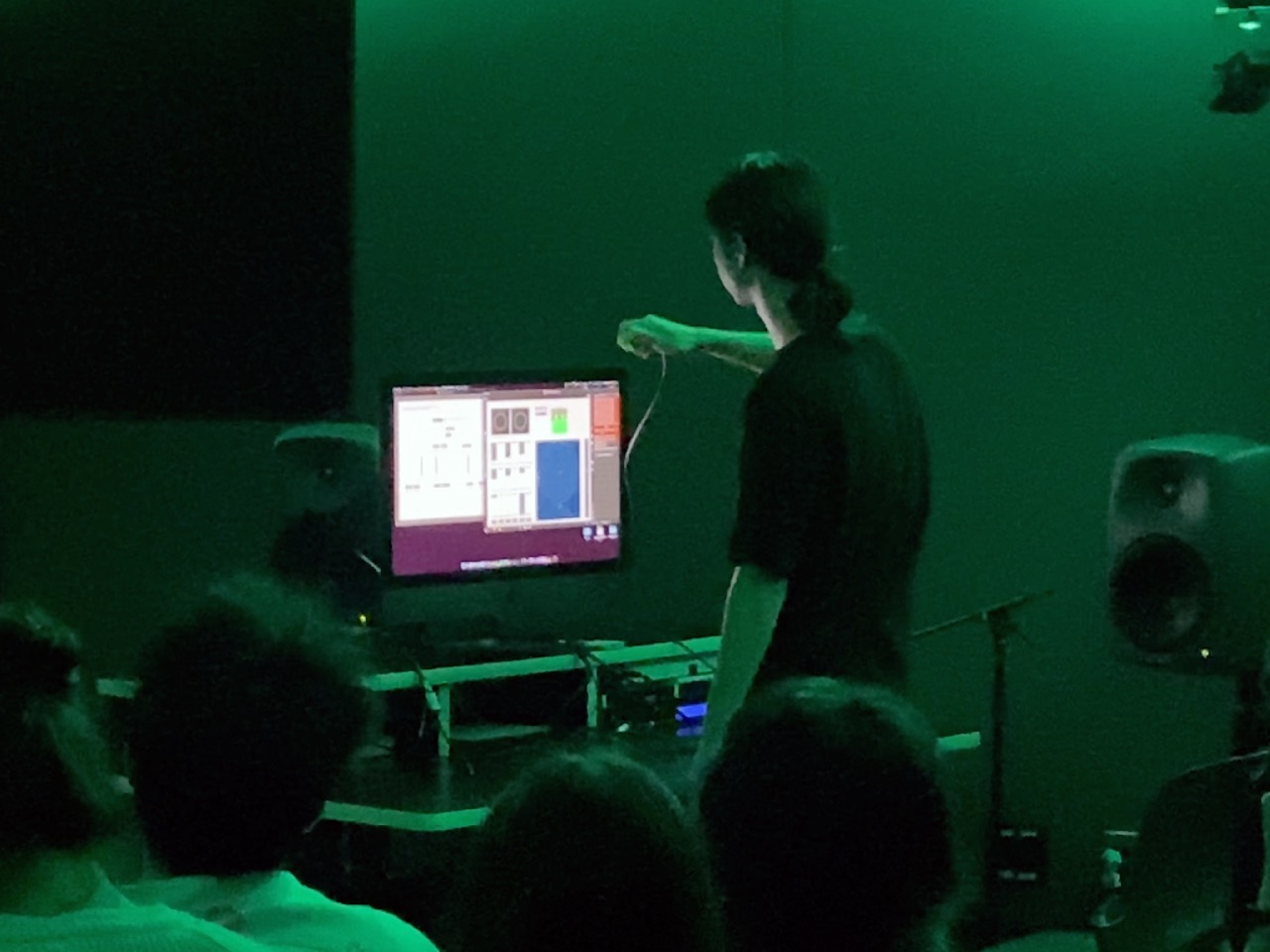
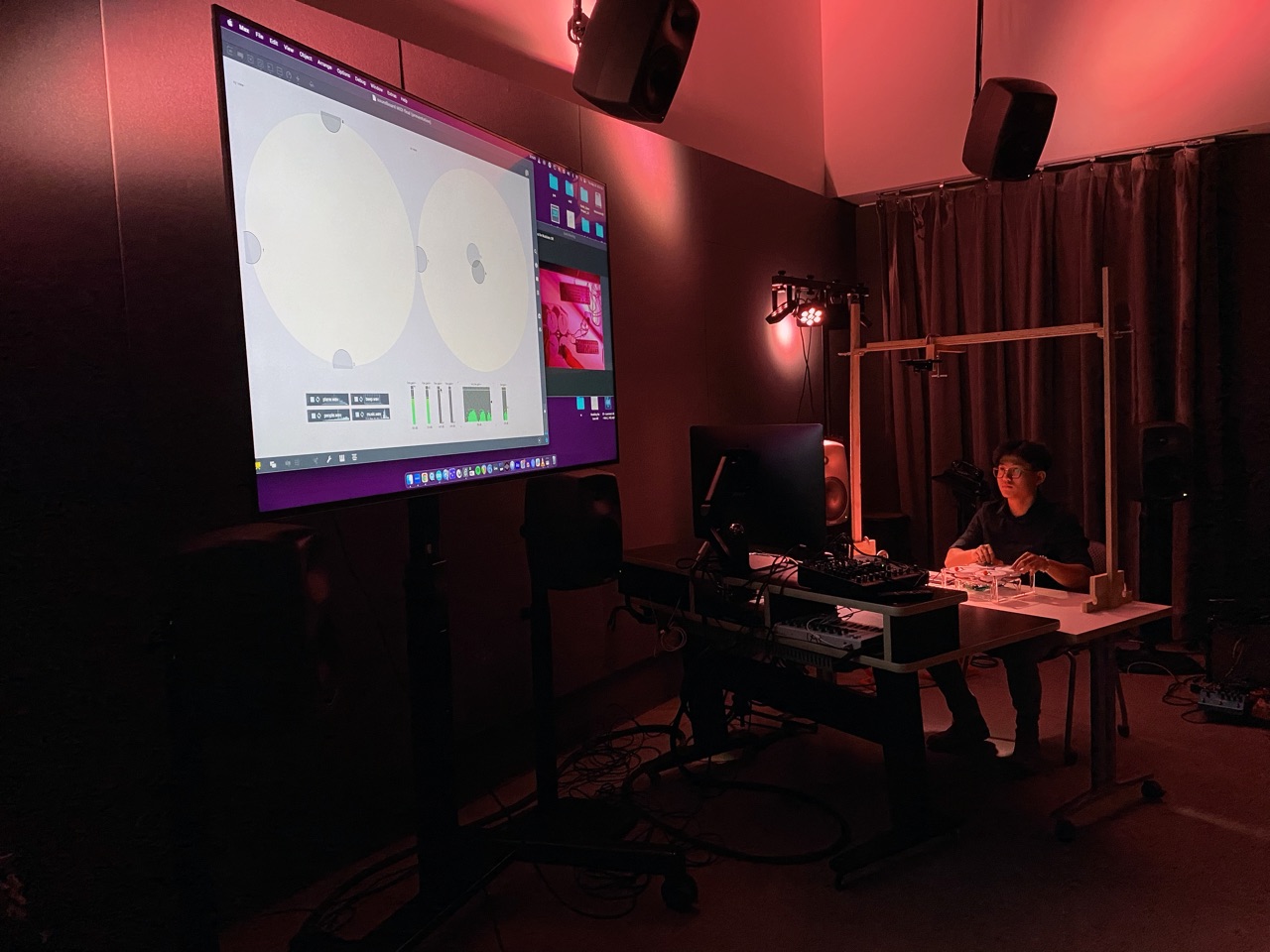
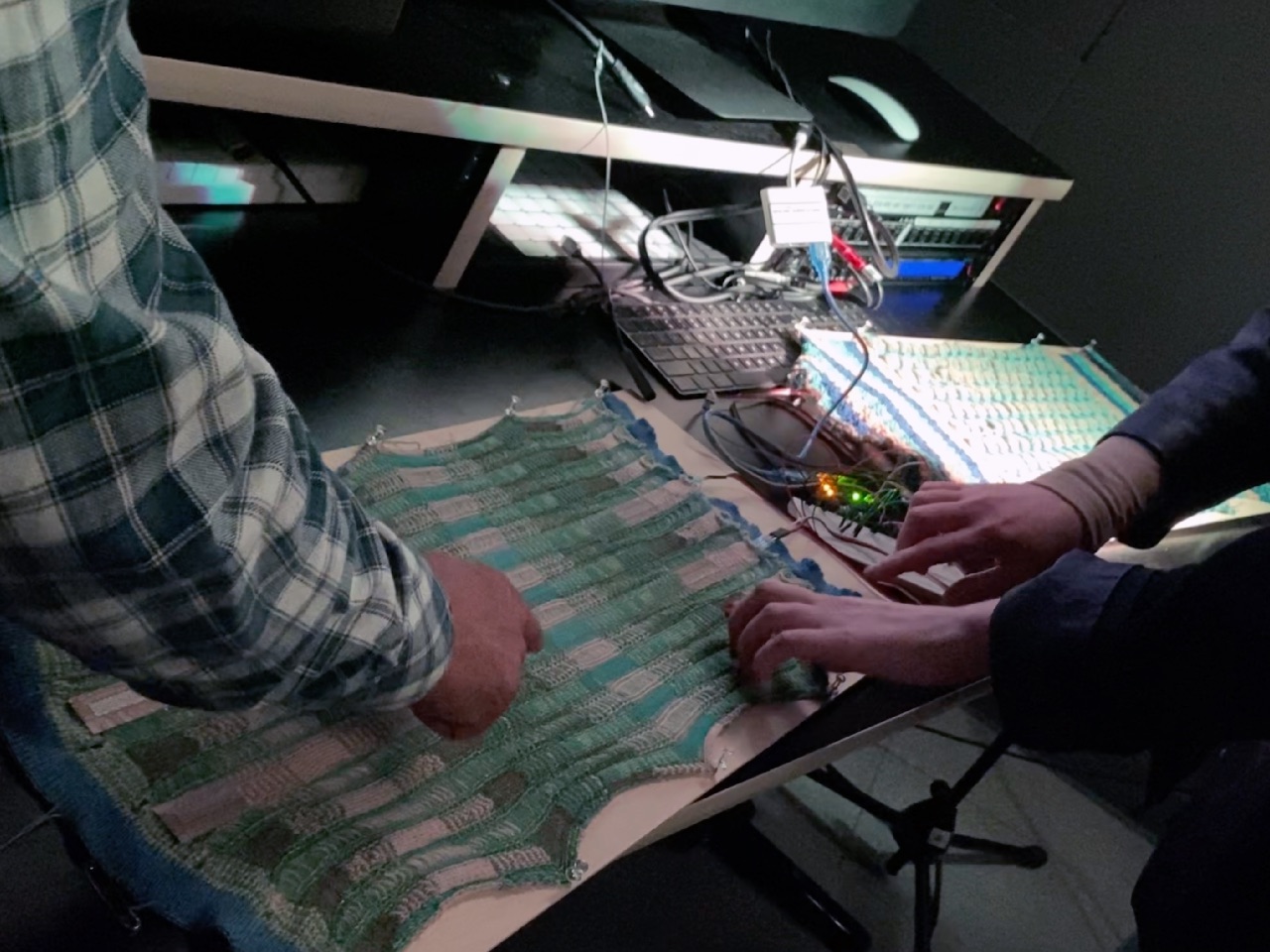
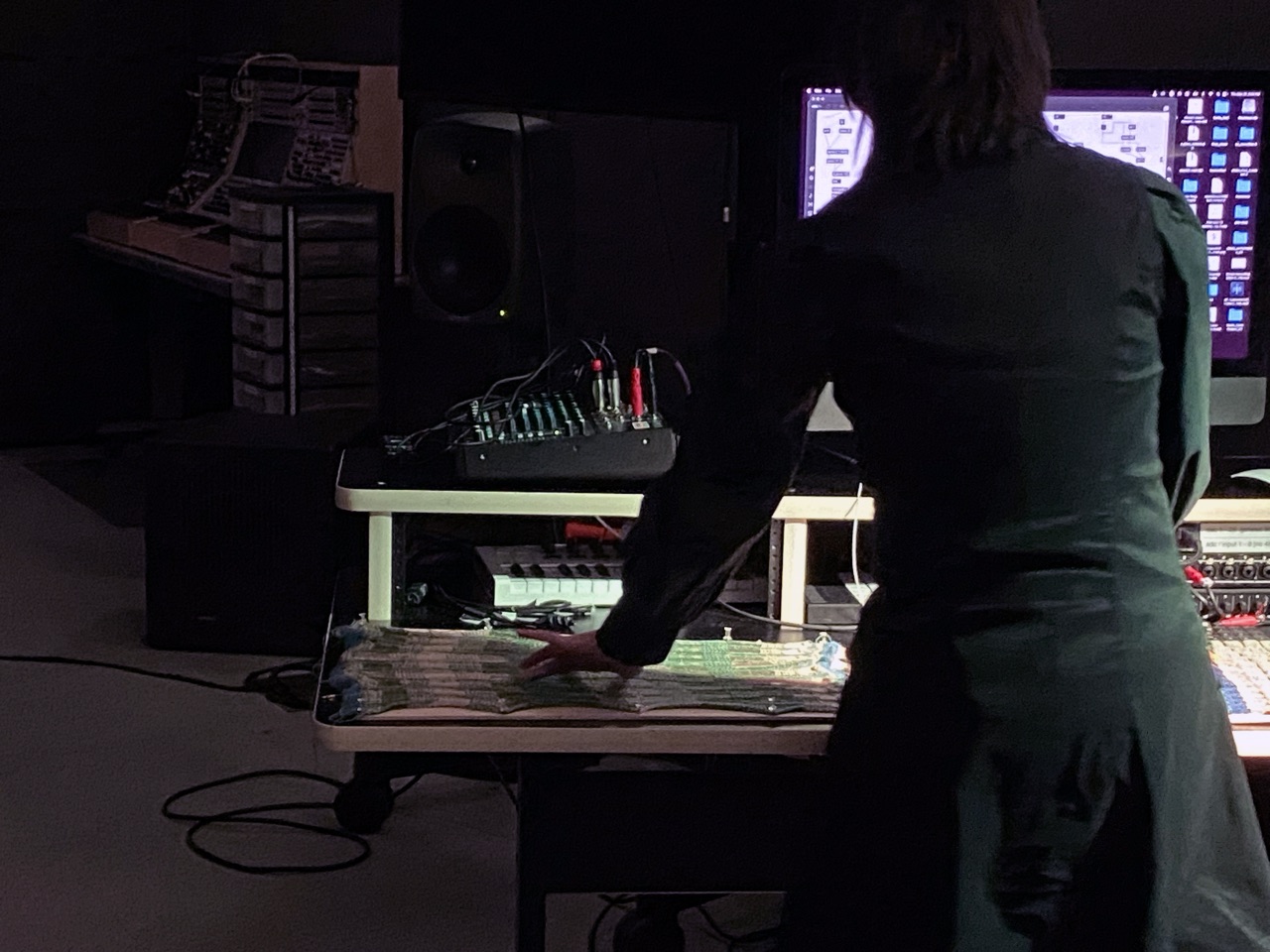
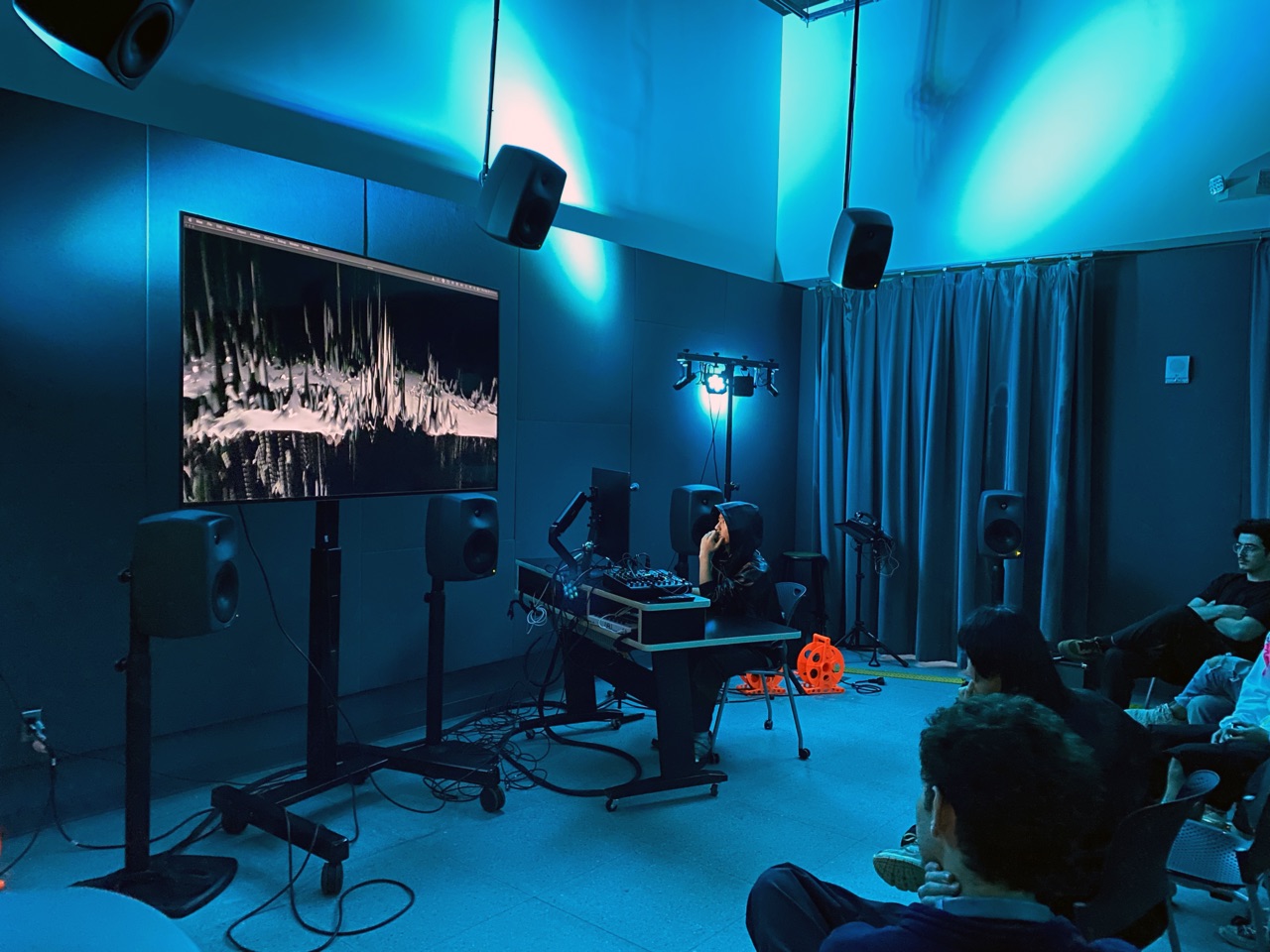
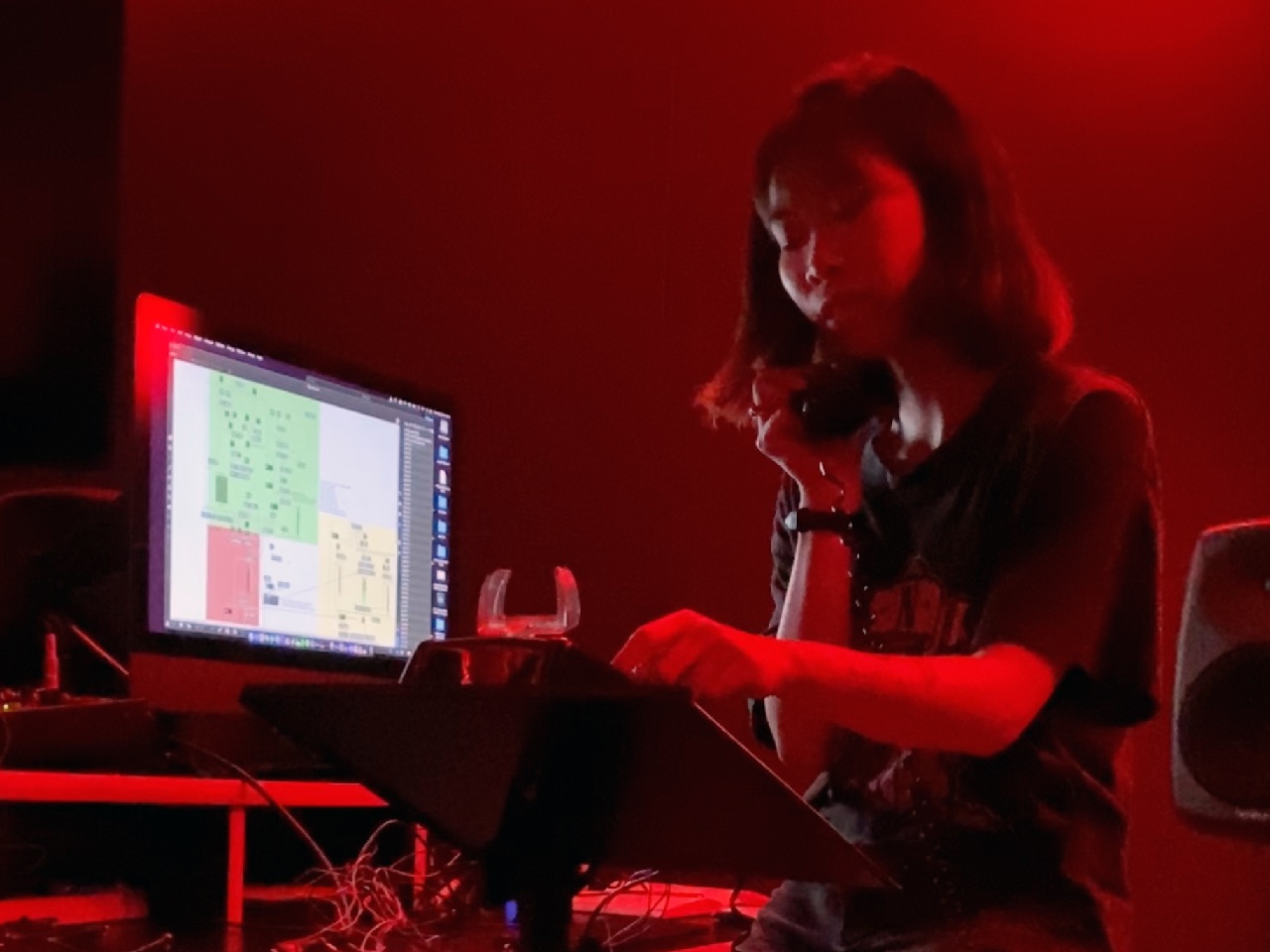
Students in the Programming Sound: Performance Systems course presented final projects in concert at SRST on May 25. The course focuses on designing computer-based instruments for sound art and music performance with the programming language Max.
Rest & Reflect #5 at Fleet Library
May 12, 2023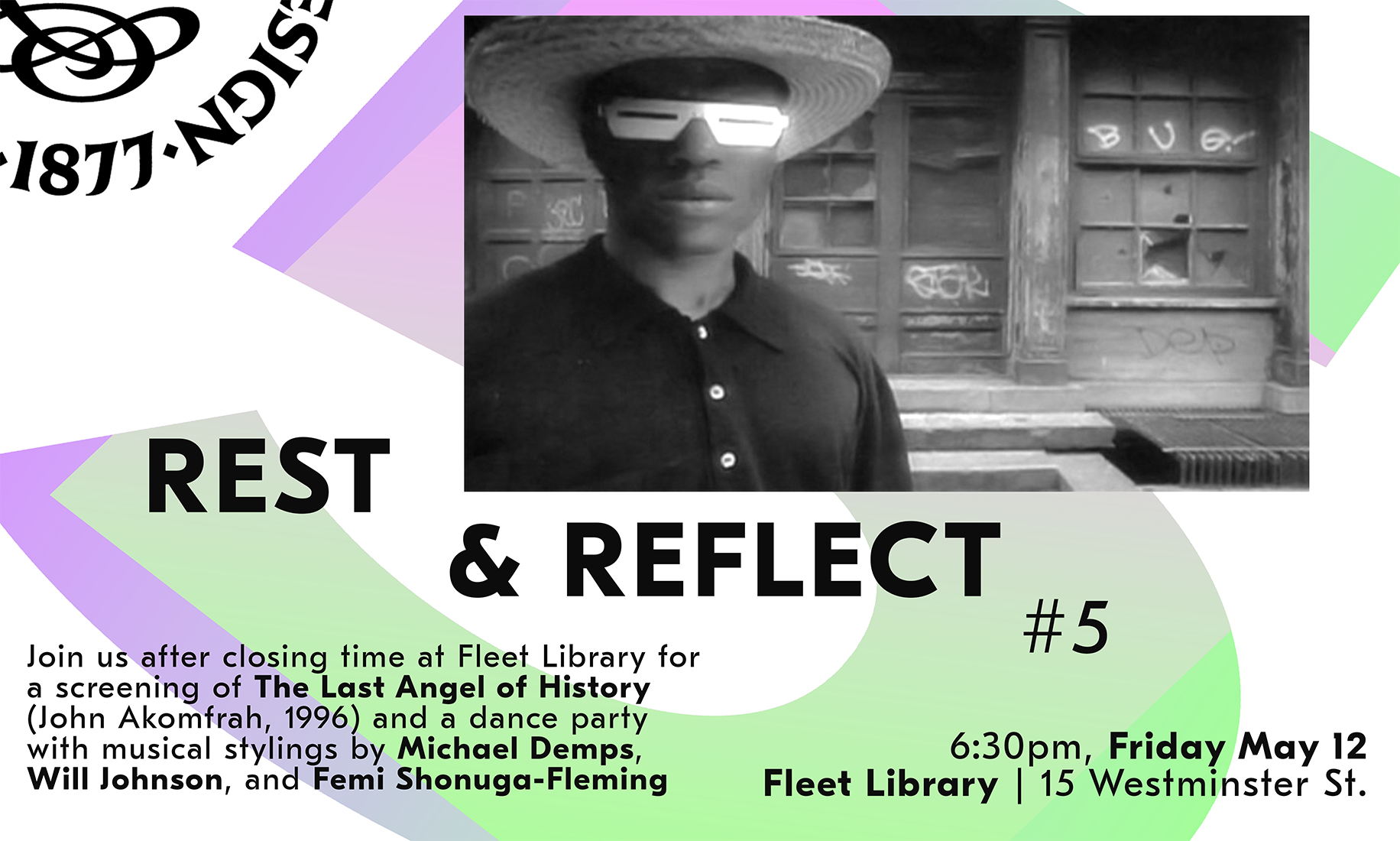
The last R&R of the year at Fleet Library is Friday, May 12, at 6:30pm!
There will be a screening of The Last Angel of History, John Akomfrah's 1996 film exploring Afrofuturism and experimental music culture.
Stay afterward for musical stylings by SRST team: Michael Demps, Femi Shonuga-Fleming, and Will Johnson.
There will be a screening of The Last Angel of History, John Akomfrah's 1996 film exploring Afrofuturism and experimental music culture.
Stay afterward for musical stylings by SRST team: Michael Demps, Femi Shonuga-Fleming, and Will Johnson.
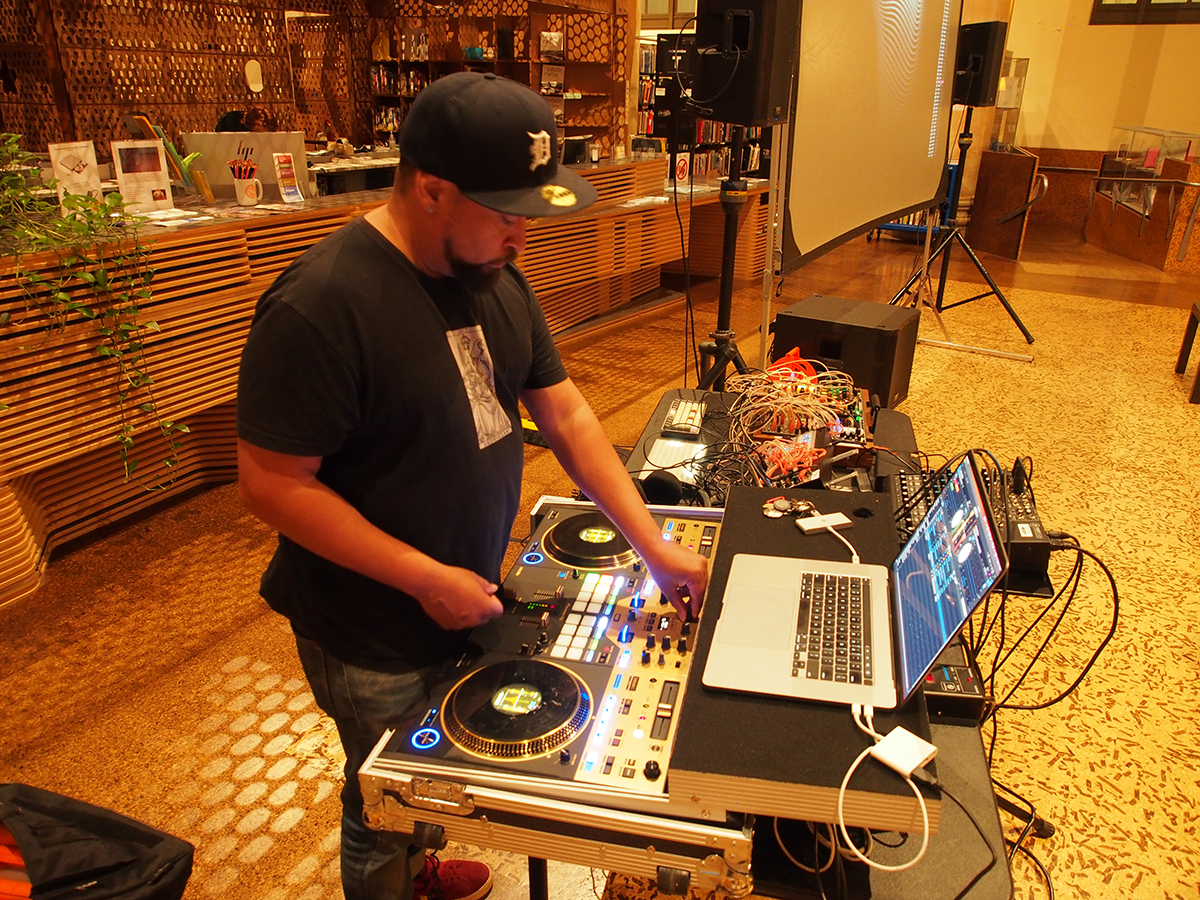
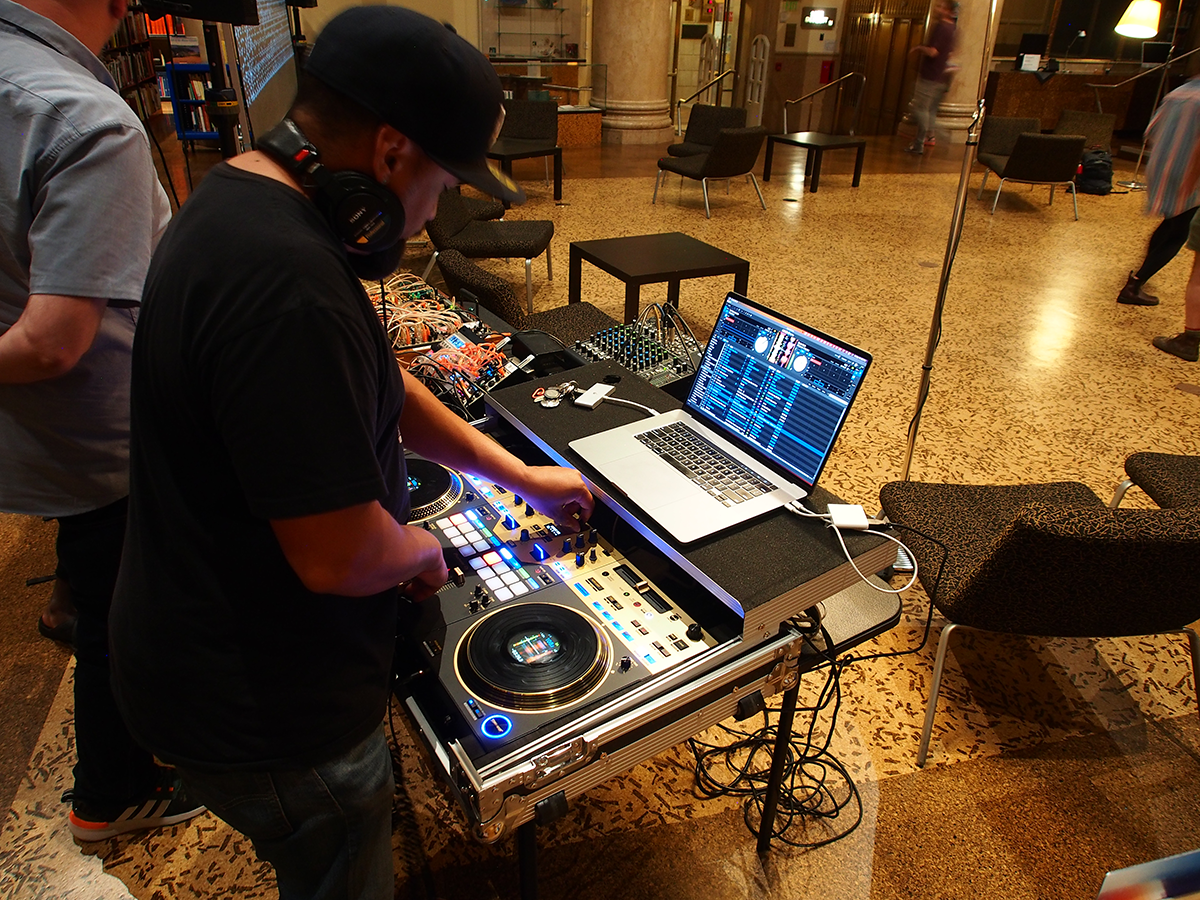
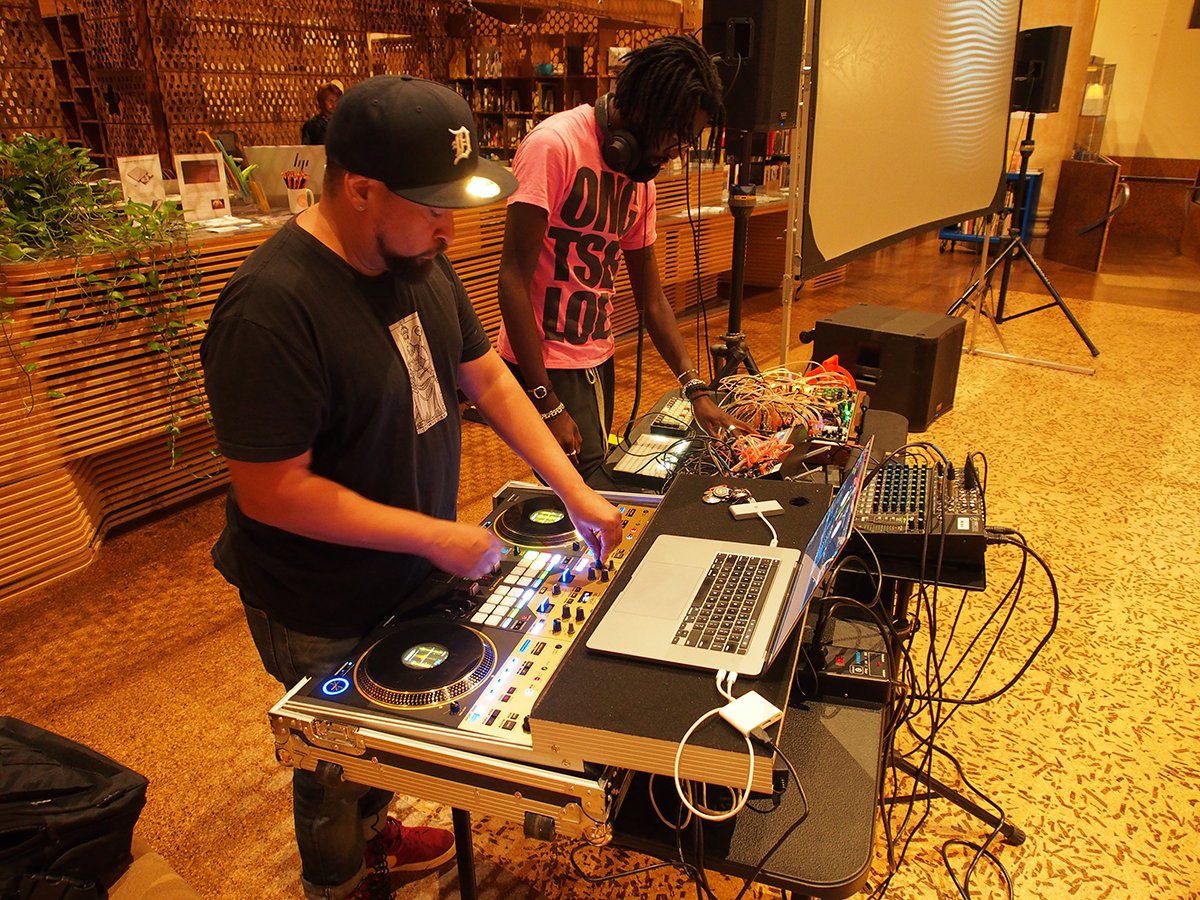


SRST presents: Byron Westbrook
May 8, 2023
Byron Westbrook
Monday, May 8
1:10 - 3:30pm
SRST
15 Westminster St, Mezzanine level
SRST is pleased to present a talk and performance by artist and composer Byron Westbrook ︎︎︎.
Based in Los Angeles, CA, Westbrook works with both music performance and installation formats, with a focus on architectural qualities of sound and the potential for audio to generate visual and social spaces. His work has been shown at the Walker Art Center (Minneapolis), ICA London, Cafe OTO (London), MoMA PS1, Fridman Gallery, Abrons Arts Center, Pioneer Works, Ambient Church, Experimental Intermedia Foundation (NY), MaerzMusik Festival (Berlin), Rewire Festival (Den Haag), Desert Daze Festival, Human Resources (Los Angeles), the LAB (San Francisco), Disjecta (Portland, OR), Experimental Sound Studios (Chicago), Instants Chavires Art Space (Paris), Fylkingen (Stockholm), O’ (Milan), Suoni Popolo, Akousma Festival (Montreal) among others. He has recorded releases with Important Records, Ash International/Touch, Hands in the Dark, Umor Rex, Root Strata and Psychic Troubles and his debut LP Precipice was named by Pitchfork as #4 best experimental release of 2015.
Westbrook holds an MFA from Bard College, where he studied with Marcus Schmickler, David Behrman and Marina Rosenfeld. He also worked closely with Phill Niblock to produce, record and archive concerts at Experimental Intermedia Foundation in NYC from 2005-2014. Westbrook has been in residence at Civitella Ranieri Foundation, Banff Centre for the Arts, ISSUE Project Room, Clocktower Gallery, Diapason Gallery, Wassaic Project and EMS Stockholm and has recently been visiting faculty with Pratt Institute’s Graduate Fine Arts Dept, Columbia University Sound Arts MFA, and International Center of Photography’s New Media Narratives program.
Monday, May 8
1:10 - 3:30pm
SRST
15 Westminster St, Mezzanine level
SRST is pleased to present a talk and performance by artist and composer Byron Westbrook ︎︎︎.
Based in Los Angeles, CA, Westbrook works with both music performance and installation formats, with a focus on architectural qualities of sound and the potential for audio to generate visual and social spaces. His work has been shown at the Walker Art Center (Minneapolis), ICA London, Cafe OTO (London), MoMA PS1, Fridman Gallery, Abrons Arts Center, Pioneer Works, Ambient Church, Experimental Intermedia Foundation (NY), MaerzMusik Festival (Berlin), Rewire Festival (Den Haag), Desert Daze Festival, Human Resources (Los Angeles), the LAB (San Francisco), Disjecta (Portland, OR), Experimental Sound Studios (Chicago), Instants Chavires Art Space (Paris), Fylkingen (Stockholm), O’ (Milan), Suoni Popolo, Akousma Festival (Montreal) among others. He has recorded releases with Important Records, Ash International/Touch, Hands in the Dark, Umor Rex, Root Strata and Psychic Troubles and his debut LP Precipice was named by Pitchfork as #4 best experimental release of 2015.
Westbrook holds an MFA from Bard College, where he studied with Marcus Schmickler, David Behrman and Marina Rosenfeld. He also worked closely with Phill Niblock to produce, record and archive concerts at Experimental Intermedia Foundation in NYC from 2005-2014. Westbrook has been in residence at Civitella Ranieri Foundation, Banff Centre for the Arts, ISSUE Project Room, Clocktower Gallery, Diapason Gallery, Wassaic Project and EMS Stockholm and has recently been visiting faculty with Pratt Institute’s Graduate Fine Arts Dept, Columbia University Sound Arts MFA, and International Center of Photography’s New Media Narratives program.
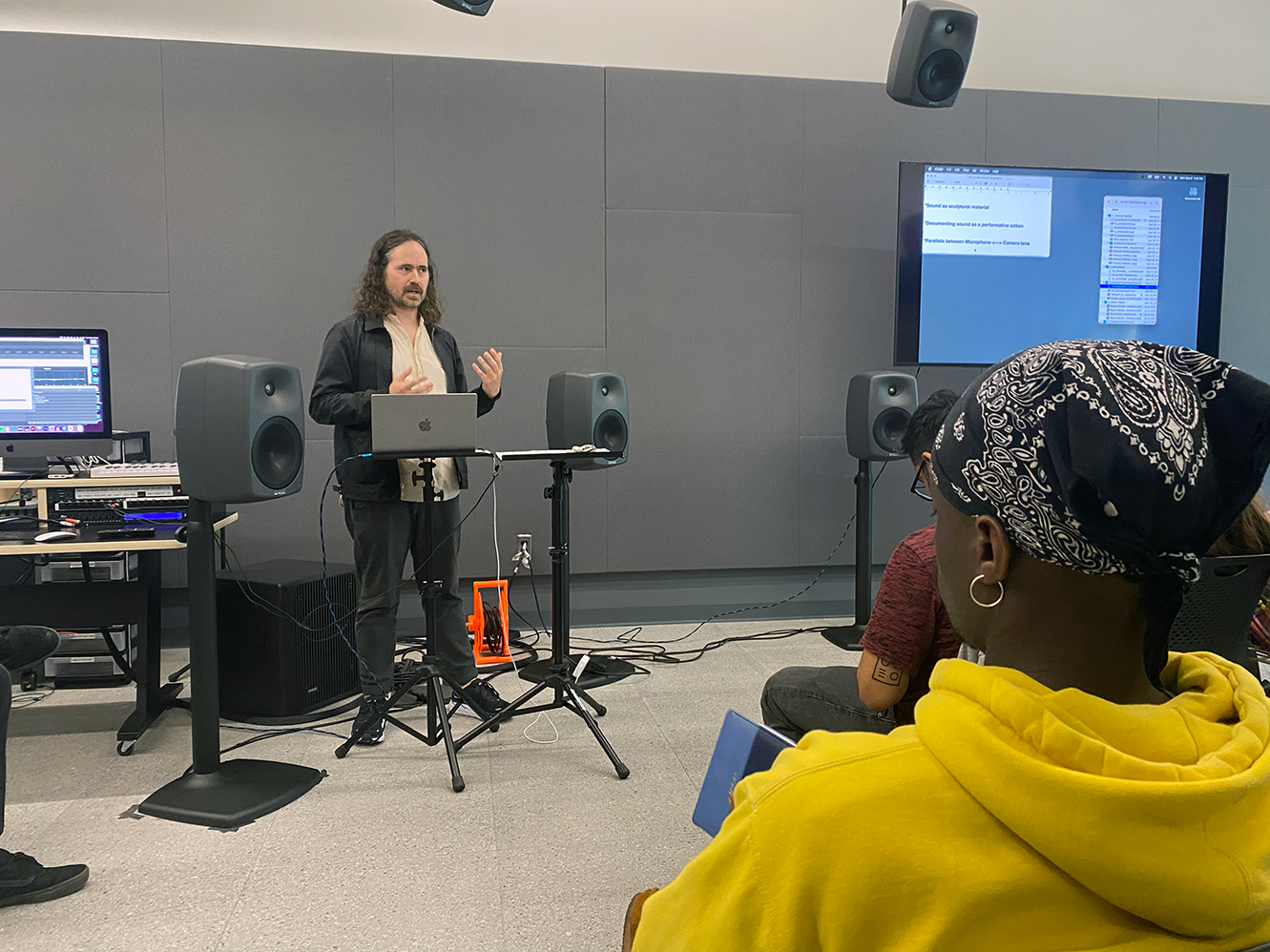

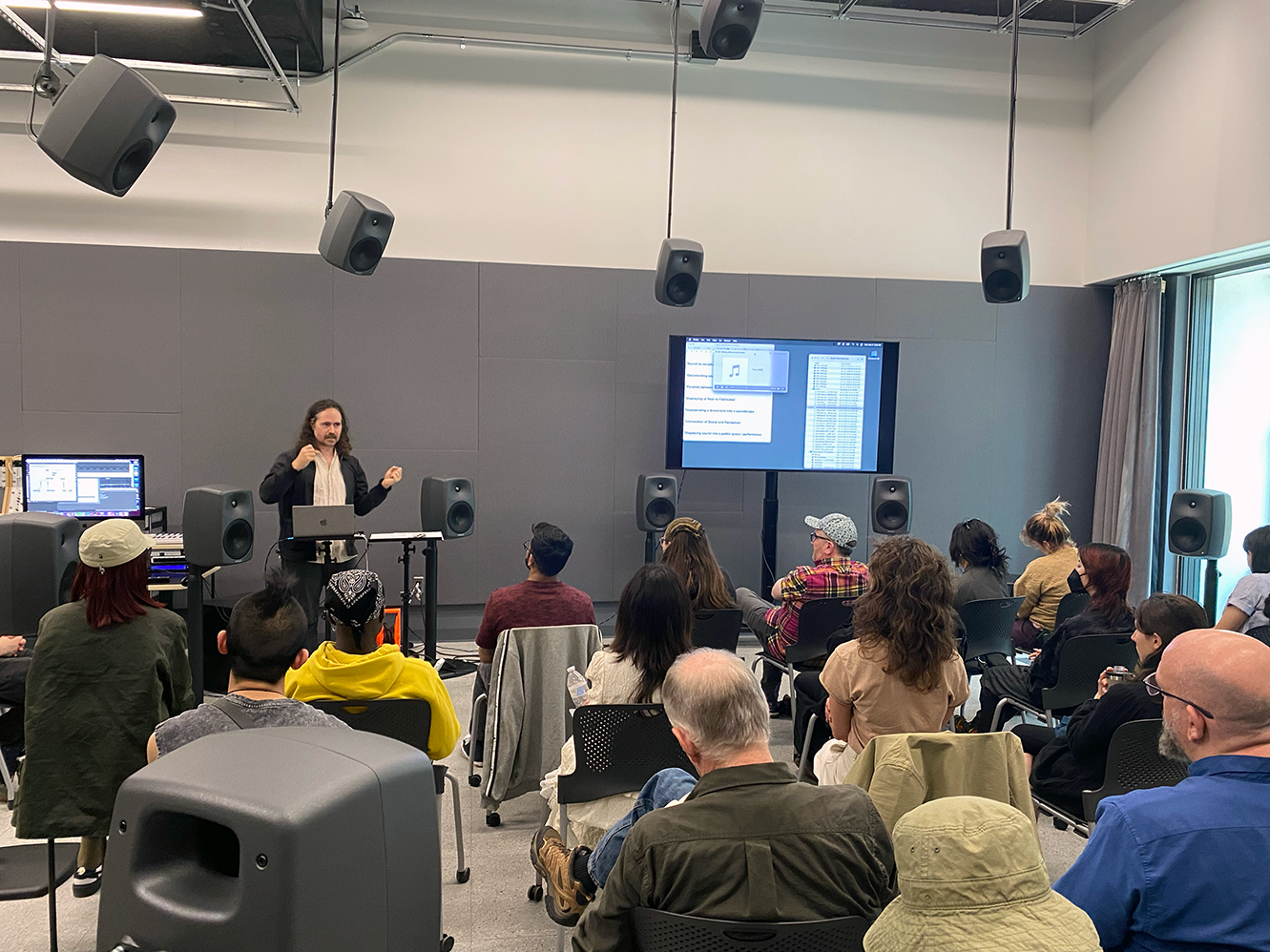
Faust workshop with Romain Michon
April 24, 2023On April 24, SRST presented a workshop with special guest Romain Michon ︎︎︎ on the Faust programming language ︎︎︎ for audio synthesis, effects, and more. One of the main features of Faust is that it can be efficiently implemented on a wide range of platforms and environments. In the workshop, thel focus was on the development of embedded audio applications with the Teensy microcontroller ︎︎︎ .

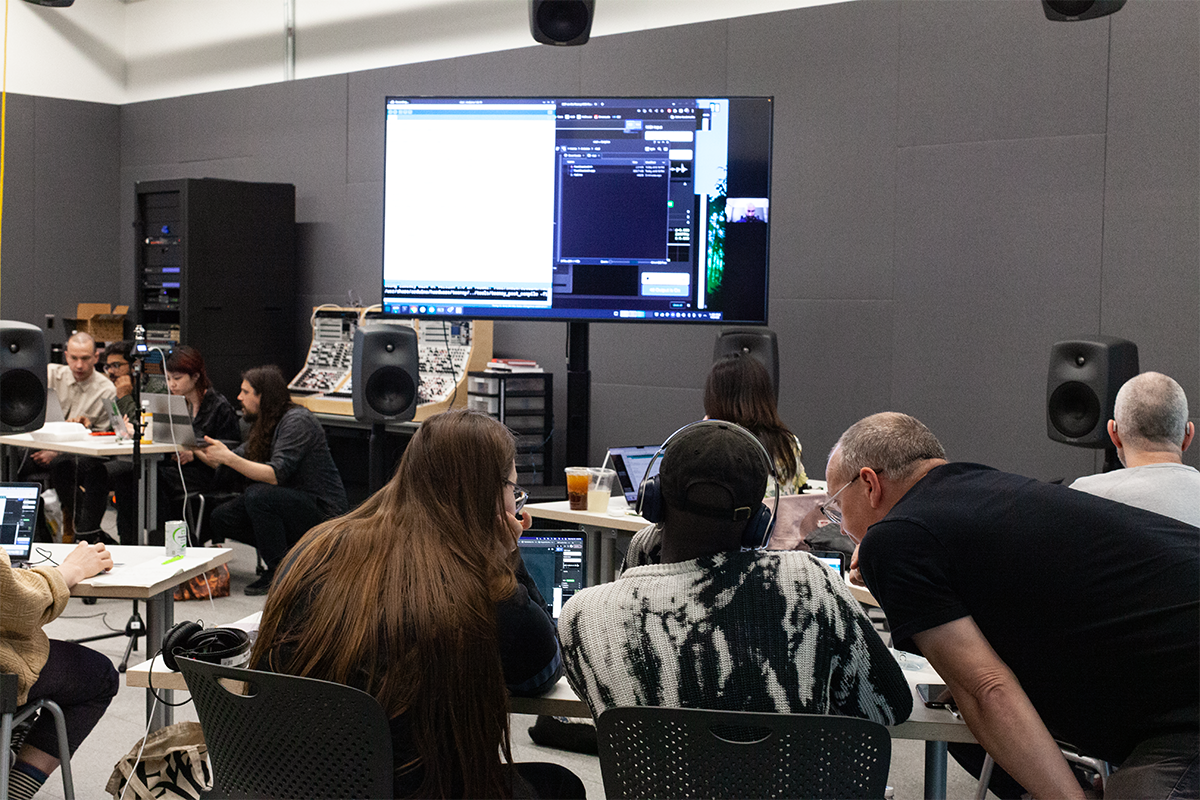
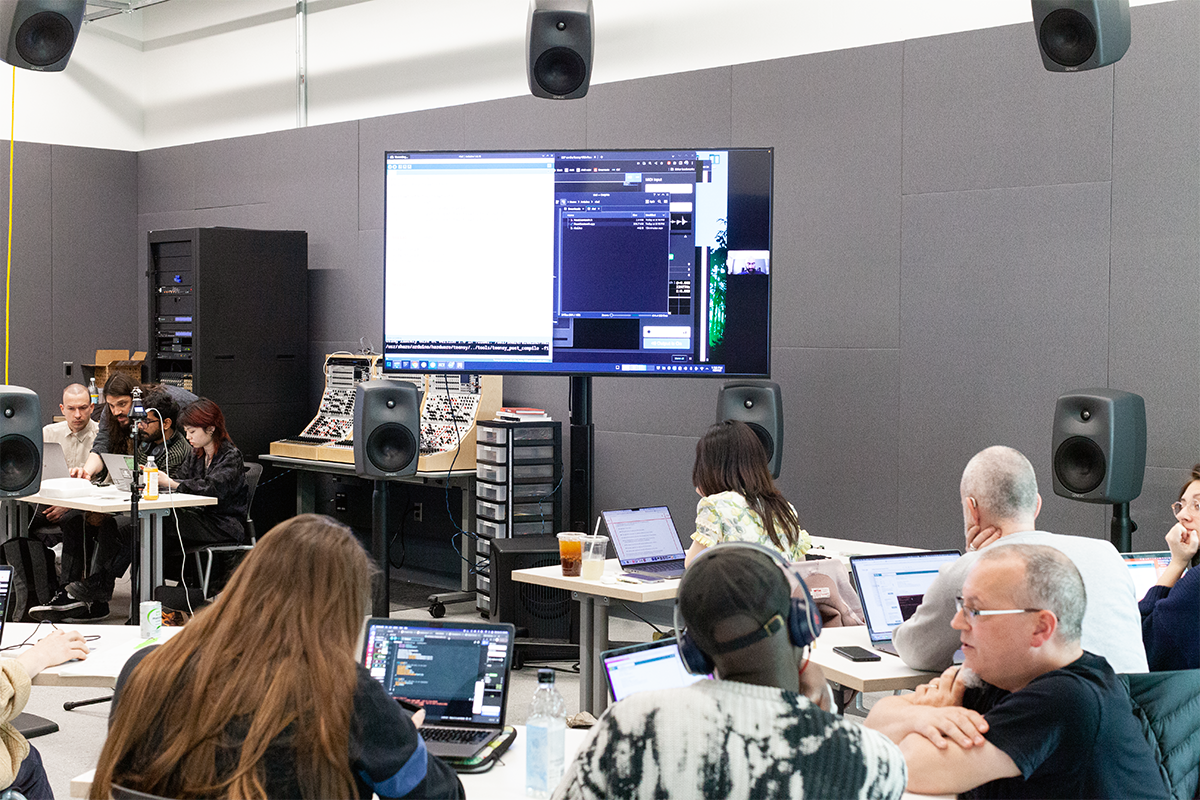
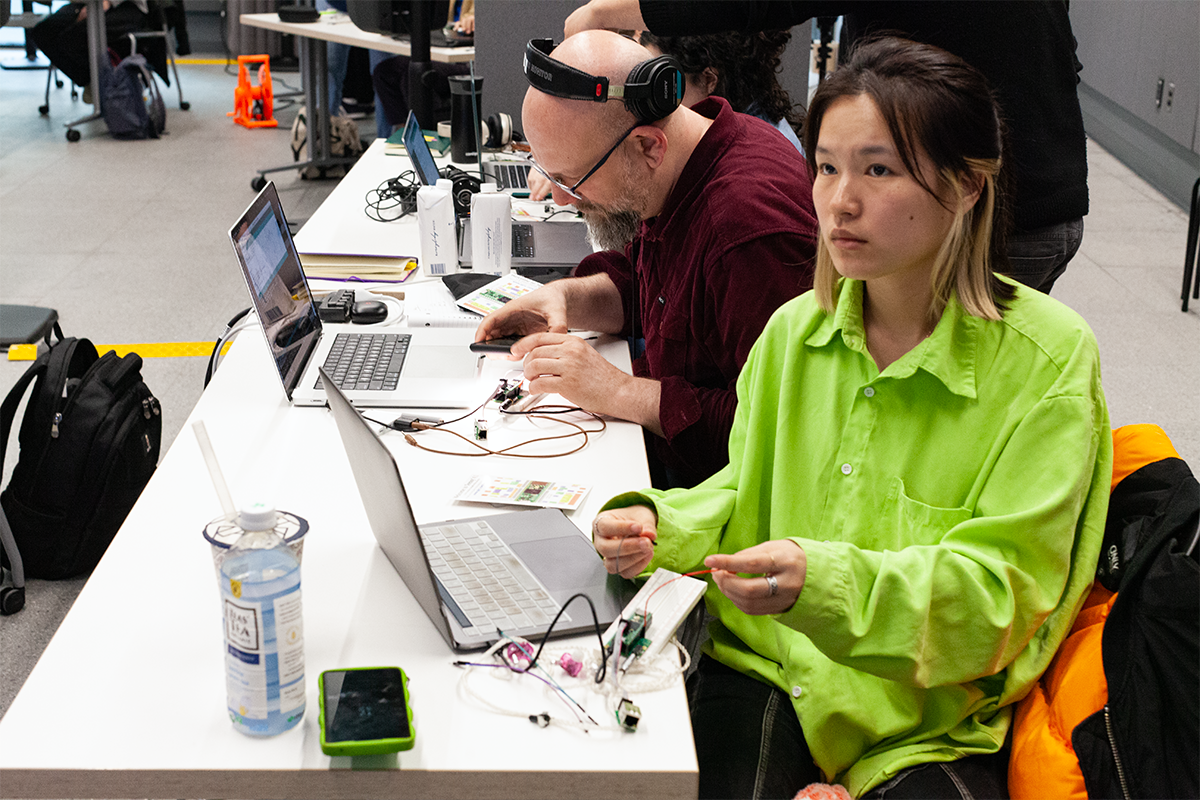
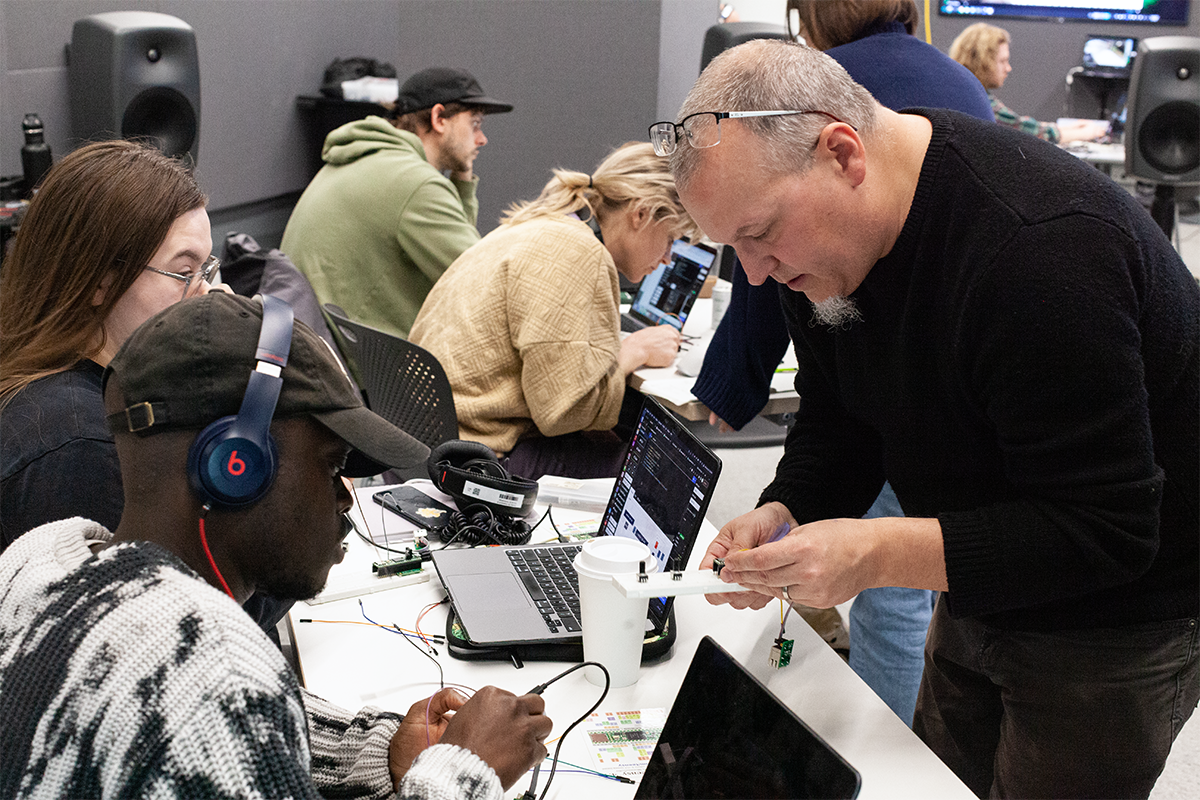
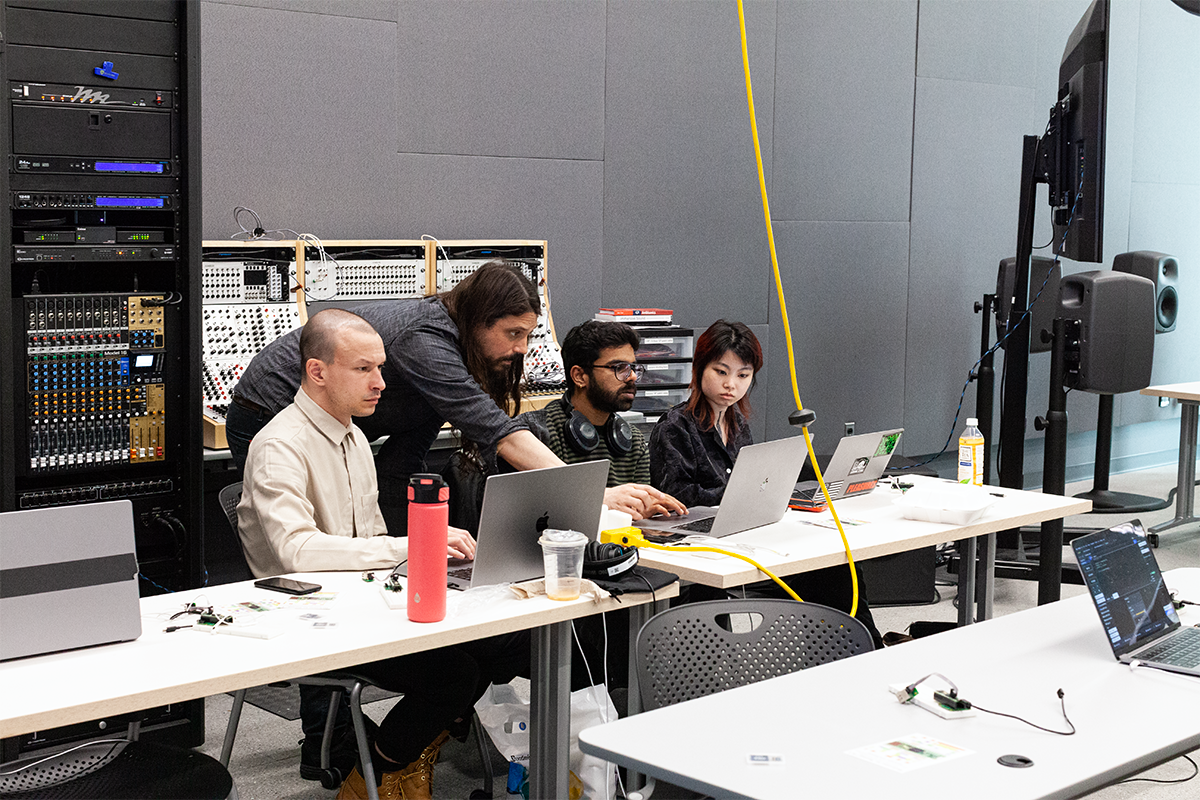
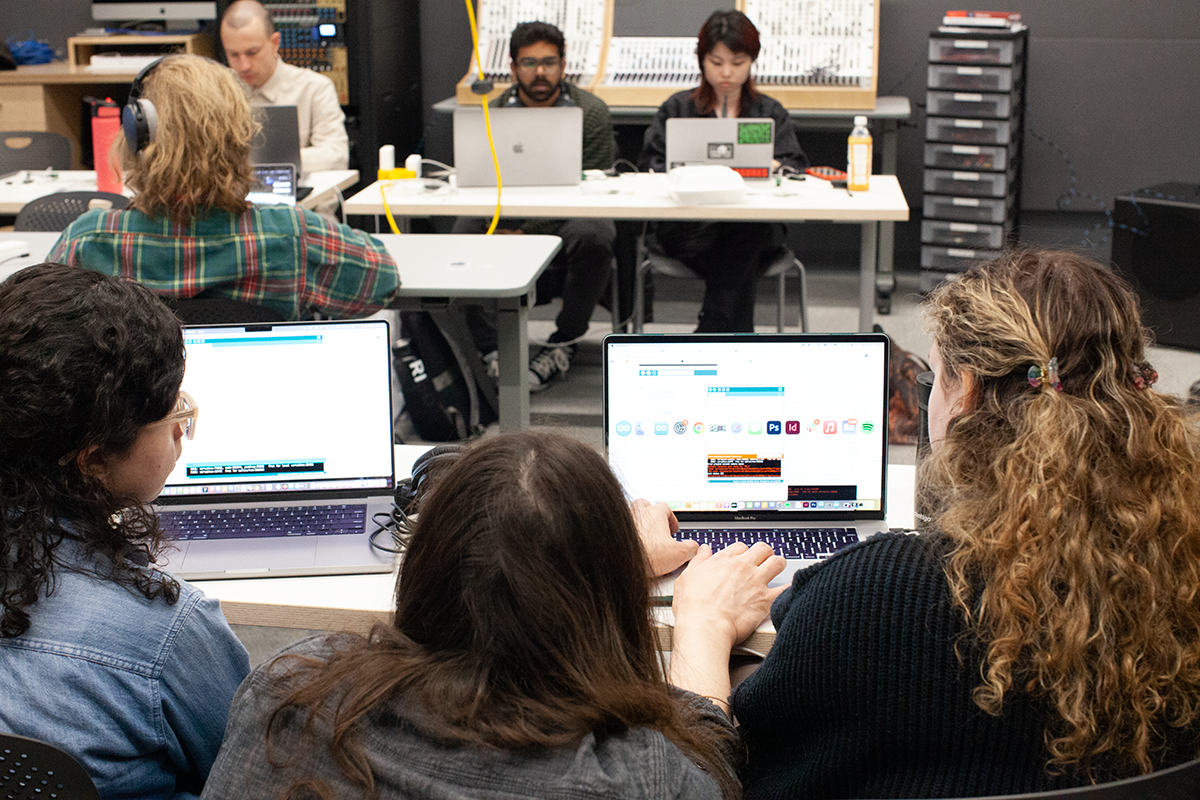
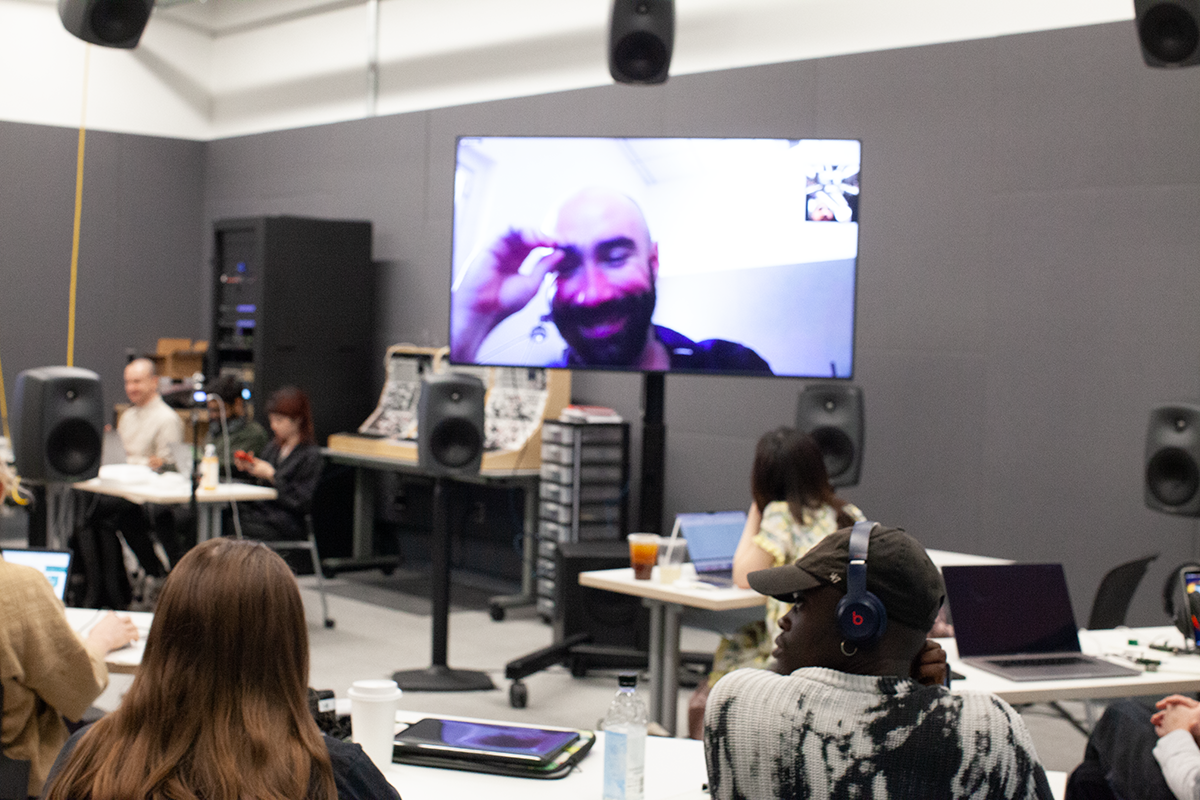
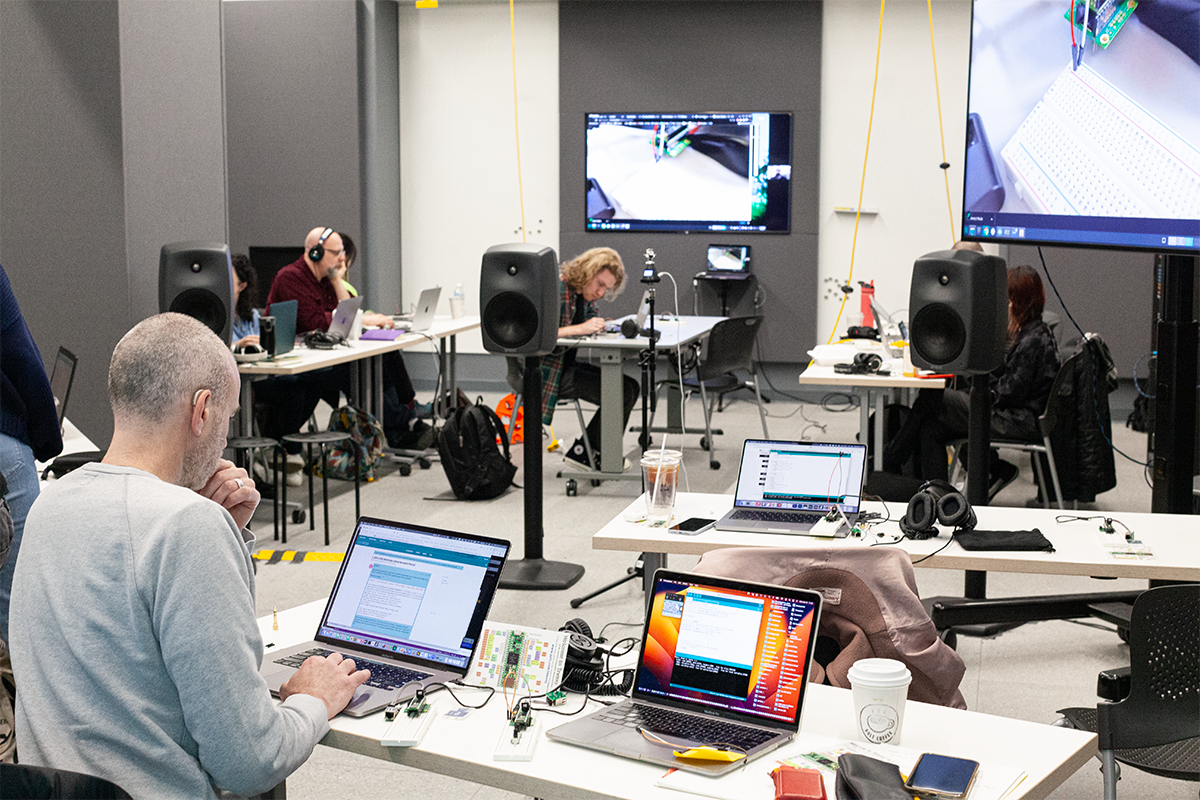
SRST presents: Phill Niblock + Katherine Liberovskaya
March 8, 2023
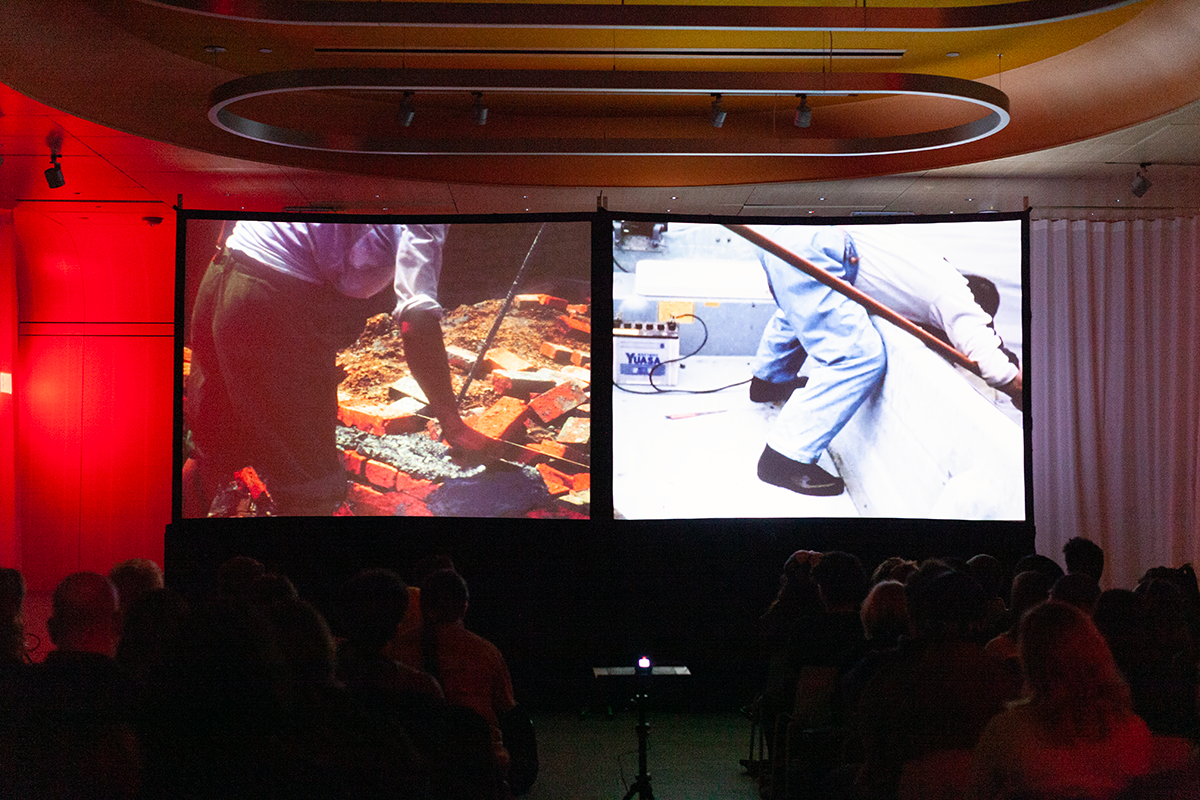
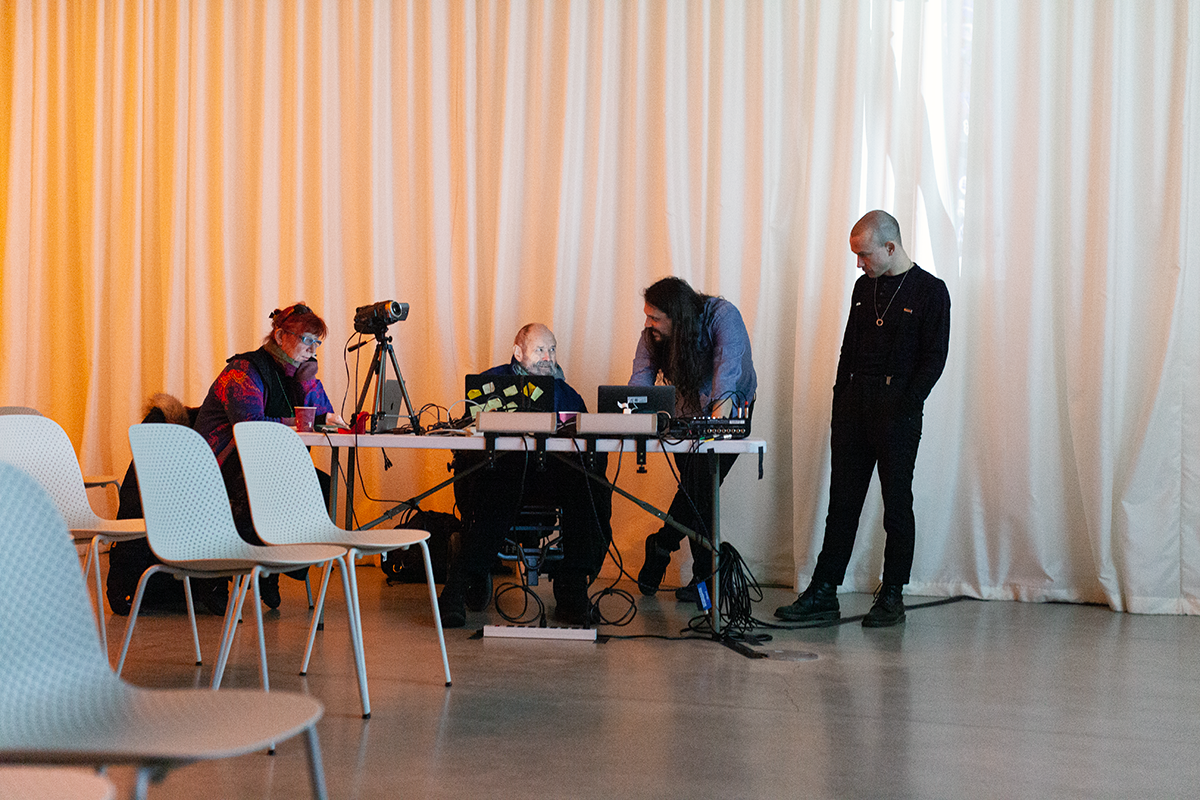
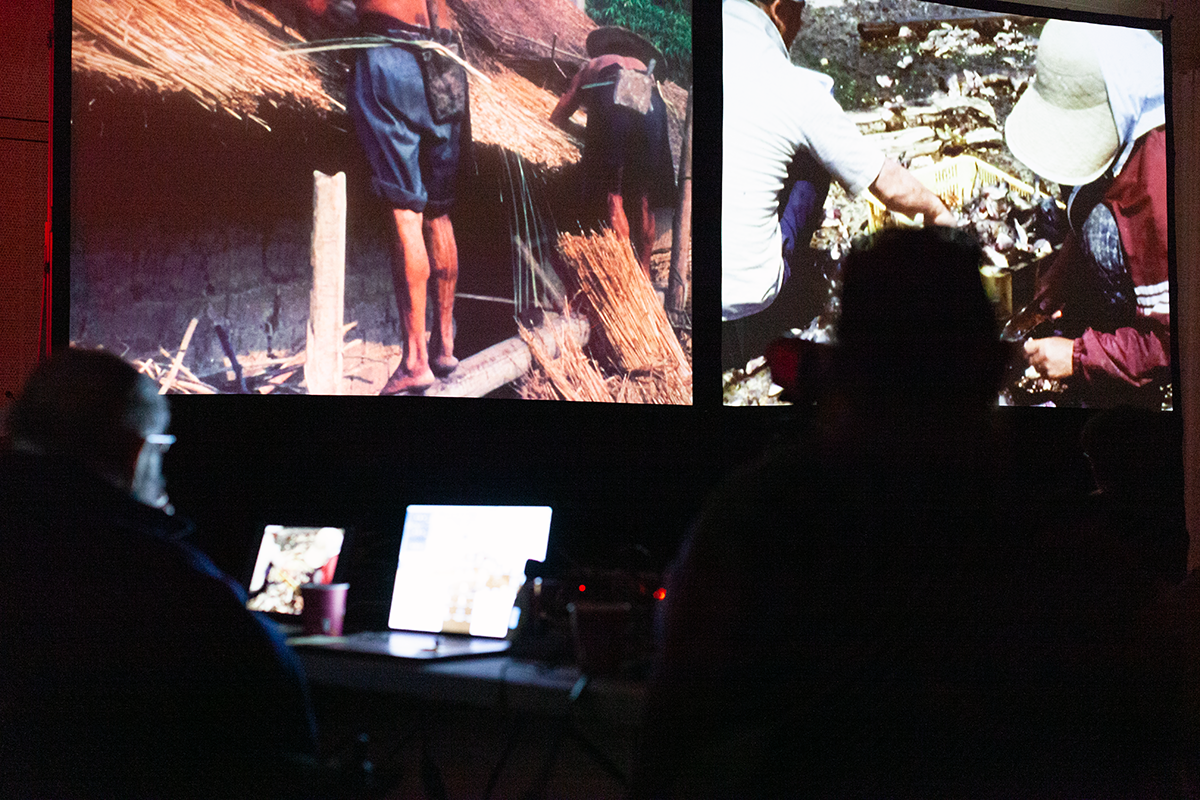
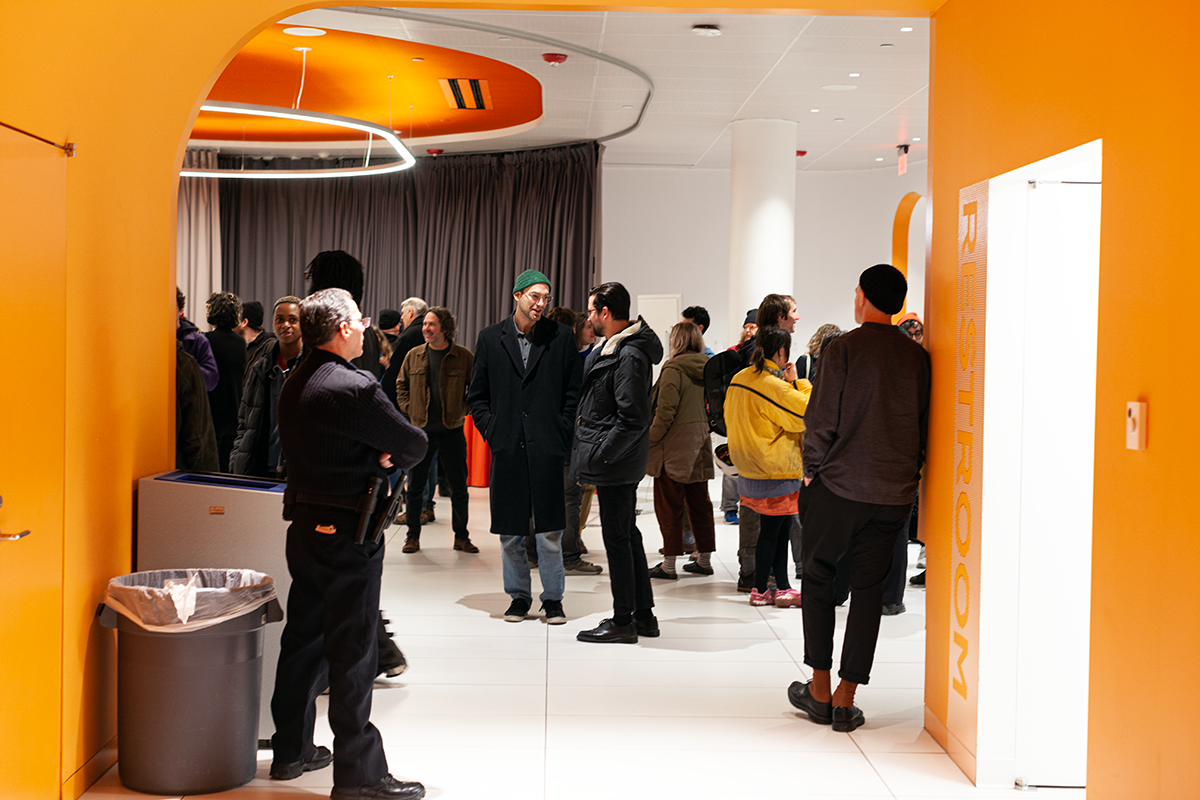
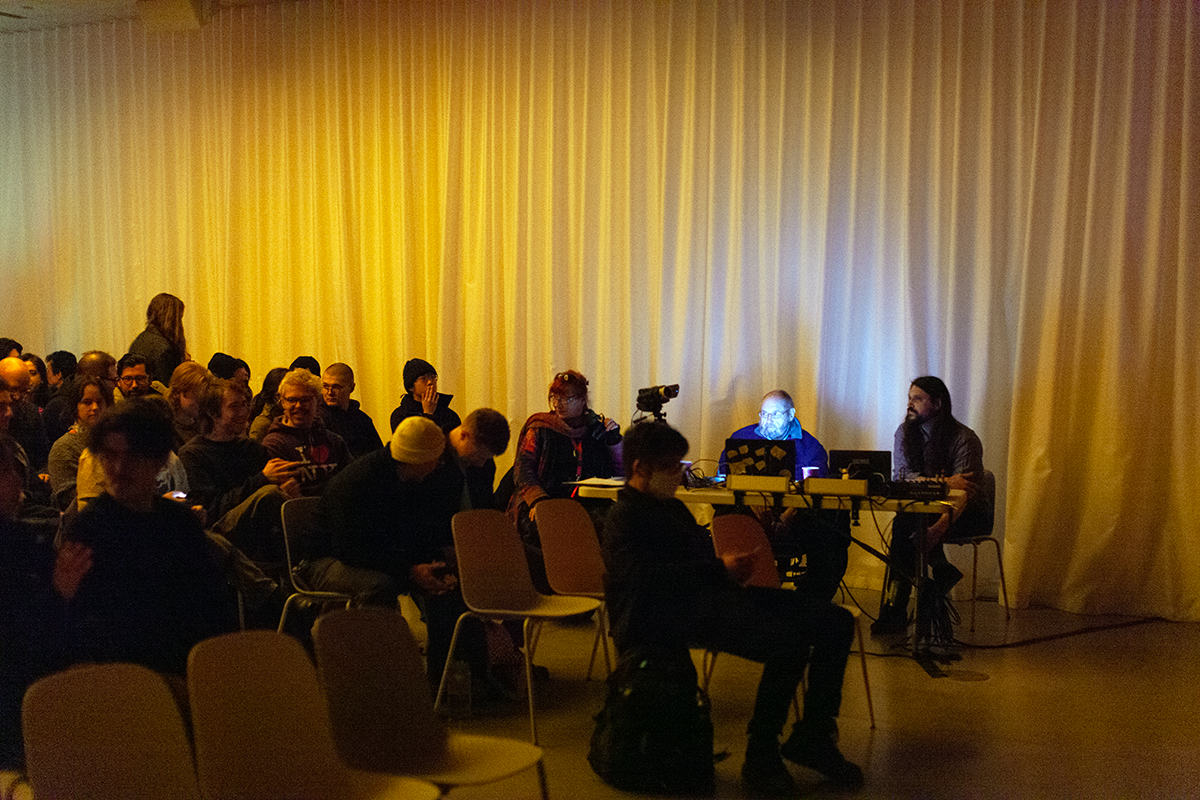
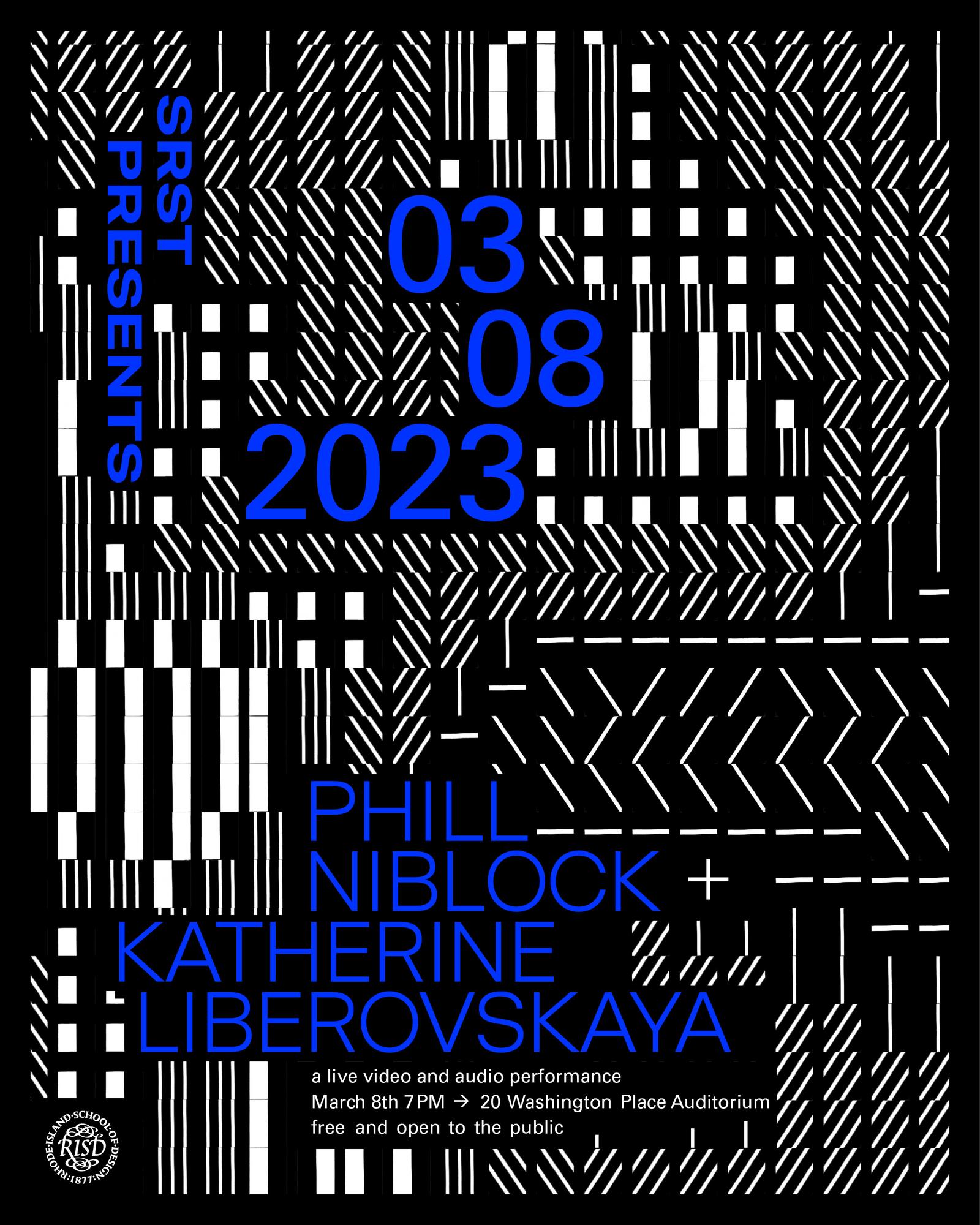
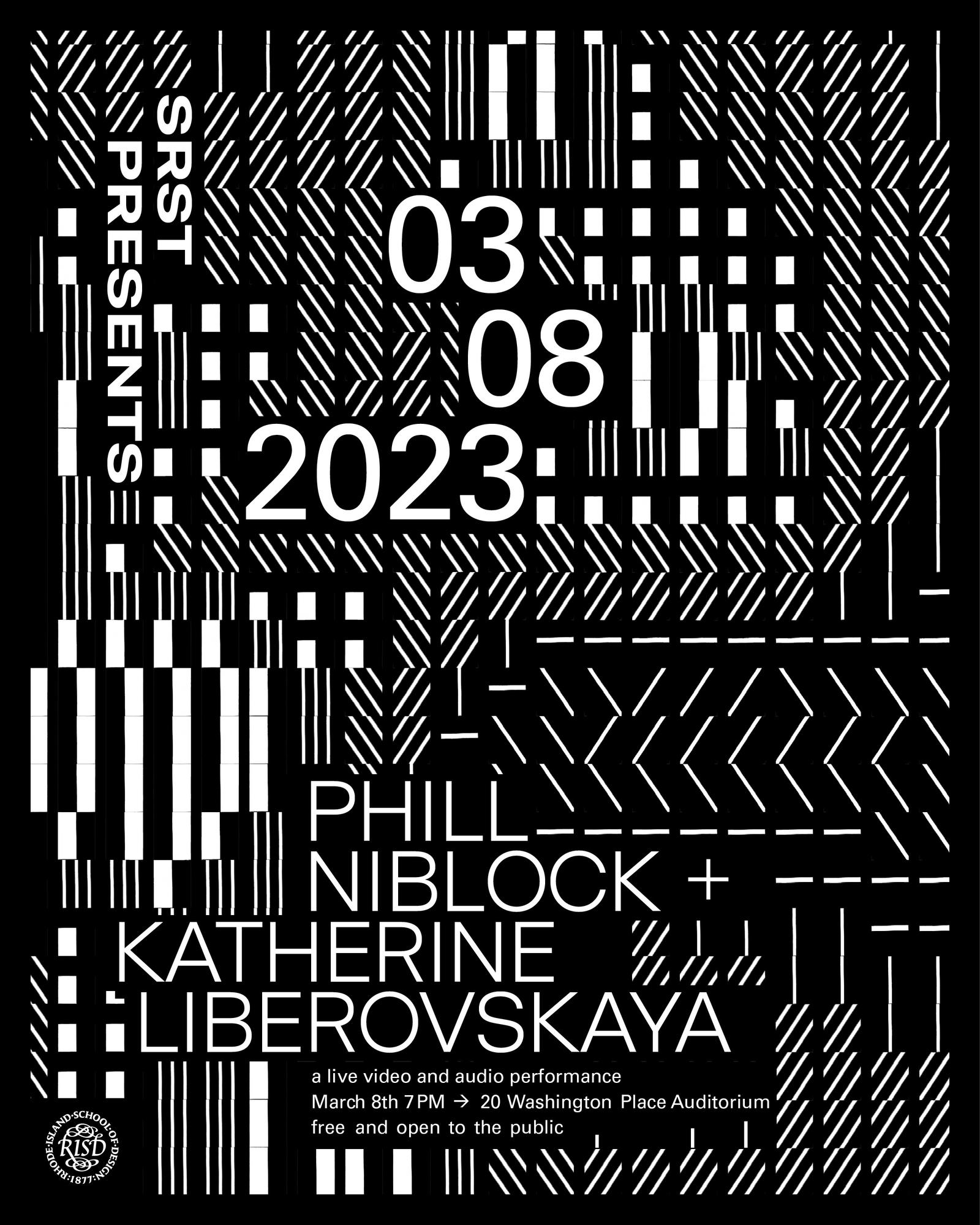
Wednesday, March 8th, 7pm
20 Washington Place Auditorium
Free and open to the public
SRST presents an evening of live music and video by Phill Niblock and Katherine Liberovskaya.
Phill Niblock ︎︎︎ (b. 1933, USA) is an artist whose fifty-year career spans minimalist and experimental music, film and photography. Since 1985, he has served as director of Experimental Intermedia, a foundation for avant-garde music based in New York with a branch in Ghent, and curator of the foundation’s record label XI. Known for his thick, loud drones of music, Niblock’s signature sound is filled with microtones of instrumental timbres that generate many other tones in the performance space. In 2013, his diverse artistic career was the subject of a retrospective realised in partnership between Circuit (Contemporary Art Centre Lausanne) and Musée de l’Elysée. The following year Niblock was honoured with the prestigious Foundation for Contemporary Arts John Cage Award.
Katherine Liberovskaya ︎︎︎ is a video and media artist based in Montreal, Canada, and New York City. She has been working predominantly in experimental video since the late eighties. Over the years, she has produced many single-channel videos, video installation works and video performances which have been presented at a wide variety of artistic venues and events around the world. As of recent years her work - in single-channel and installation video as well as performance - mainly revolves around collaborations with new music composers/sound artists, notably Phill Niblock, Al Margolis/If,Bwana, Hitoshi Kojo, Zanana, Anne Wellmer, David First and David Watson. Since 2003 she is active in live video mixing exploring improvisation with numerous live new music/audio artists including: Margarida Garcia, Barry Weisblat, o.blaat, murmer, André Gonçalves, Monique Buzzarté, Anthony Coleman, Shelley Hirsch, Giuseppe Ielasi, Renato Rinaldi, Audrey Chen, among many others. In addition to her art practice she has concurrently been involved in the programming and organization of diverse media art events, notably with Studio XX in Montreal (programming coordinator 1996-1998, president 2001-2003), Espace Vidéographe, Montreal and Experimental Intermedia, NY (Screen Compositions 2005, 2006, 2007, 2008) as well as the OptoSonic Tea series with Ursula Scherrer at Diapason in NYC and in various locations in Europe and elsewhere with OptoSonic Tea On the Road.
Ear Tone Toolbox version 1.2 released!
January 24, 2023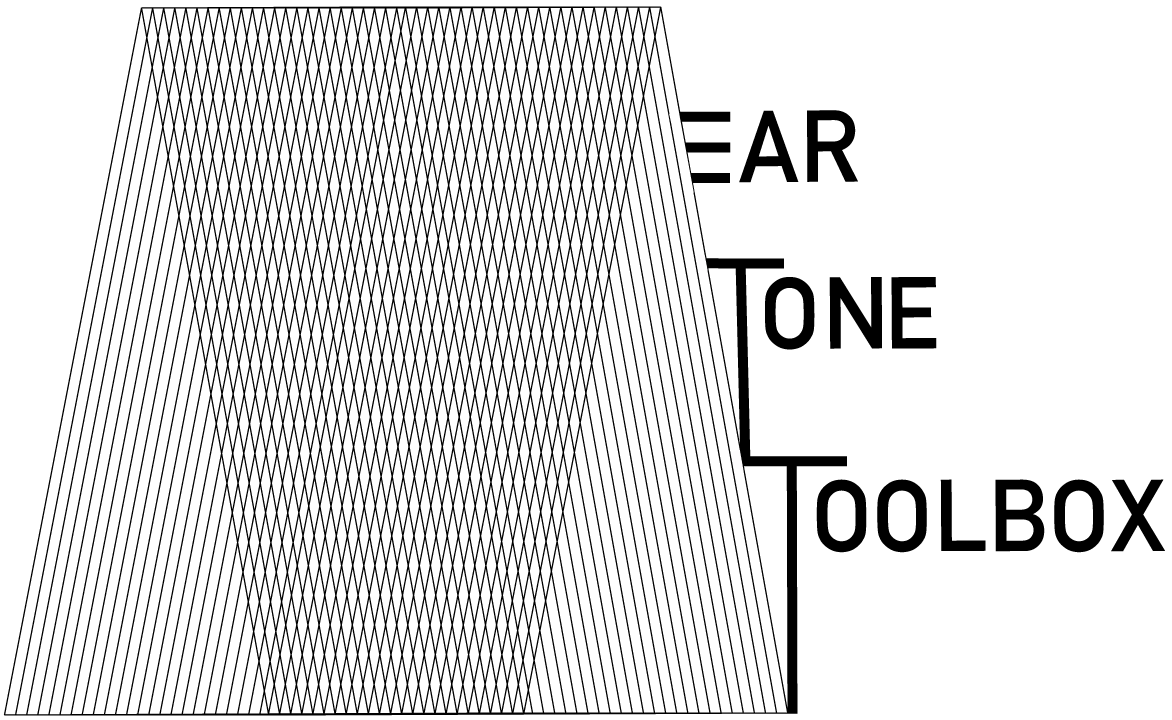
SRST Research Fellow Alex Chechile has released a new version of his Ear Tone Toolbox ︎︎︎.
| The Ear Tone Toolbox is a free collection of instruments that evoke naturally generated tones in the ear. Called difference tones or auditory distortion products, the “ear tones” occur at separate frequencies from the provoking acoustic tones, sound as if they emerge from within the head, and are not physically present in the acoustic space. The instruments in The Ear Tone Toolbox produce the necessary acoustic frequencies for evoking difference tones with precision. The instruments control the two most prominent difference tones: the quadratic difference tone and the cubic difference tone. The Ear Tone Toolbox contains instruments that are ready to use in a variety of software and hardware environments, as well as optional source code for compiling to other formats and platforms using the Faust and Cycling74 RNBO programming languages. The current version of the software consists of several instruments, each with multiple variations. The instruments can be used in most digital audio workstation (DAW) software such as Ableton Live, programming environments such as Max/MSP or Pure Data, or with hardware modular synthesis systems. |
SRST interview on risd.edu
January 23, 2023
In an interview with Simone Solondz ︎︎︎, Shawn Greenlee and Alex Chechile join faculty members Mark Cetilia and Michael Demps and current students Femi Shonuga-Fleming and Will Johnson to explain how SRST contributes to RISD’s overall educational mission.
FOAFX version 1.1 released
January 1, 2023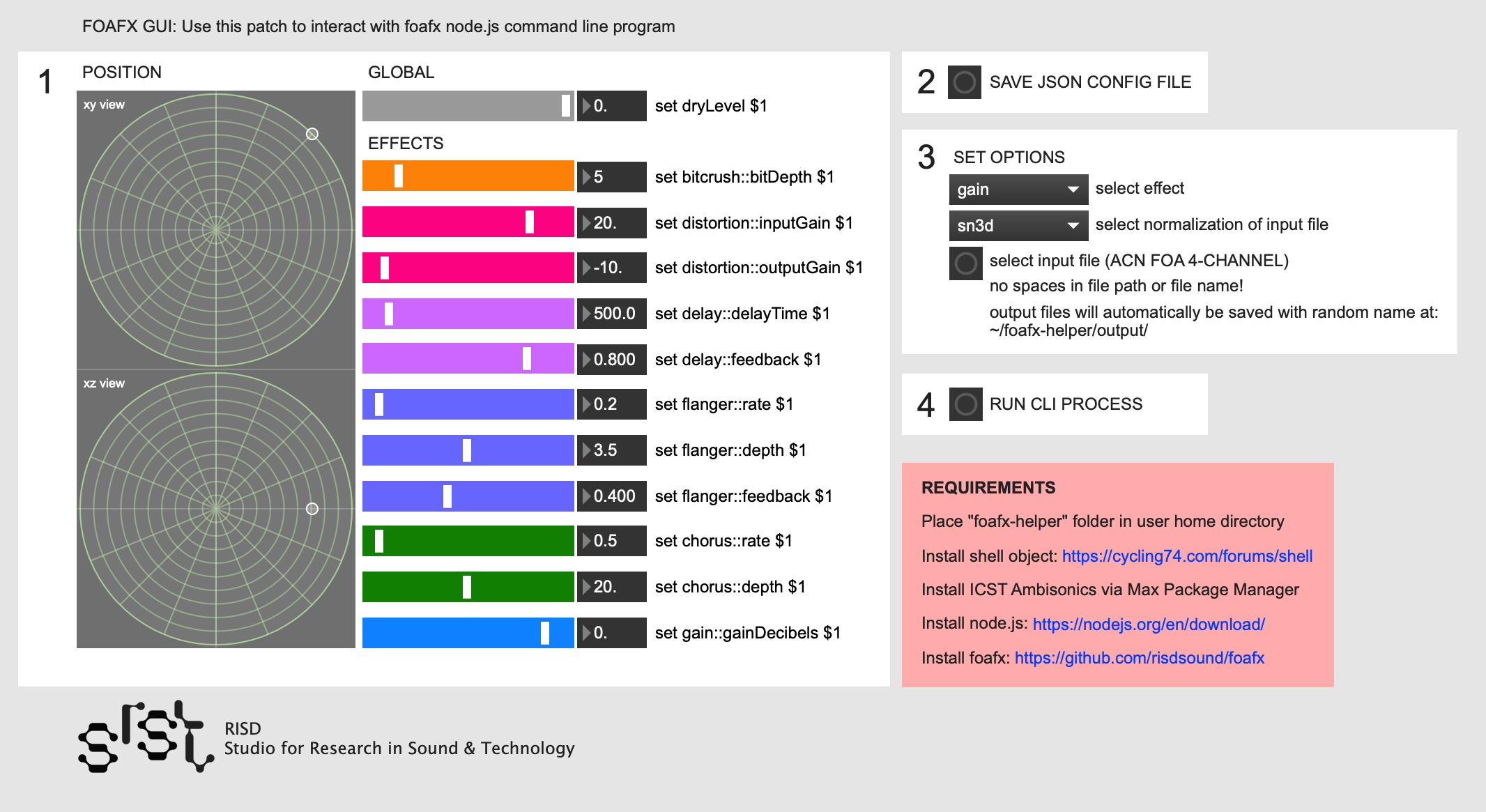
SRST has released a new version of FOAFX, a command line tool for applying spatially positioned audio effects to first order ambisonic sound files. It is written with Elementary ︎︎︎, a JavaScript framework for writing audio applications.
FOAFX is a Node.js program distributed on NPM ︎︎︎ with source code available on GitHub ︎︎︎. A Max patch for configuring and running FOAFX is also available ︎︎︎.
Camille Norment talk at Fleet Library, 2022
October 17, 2022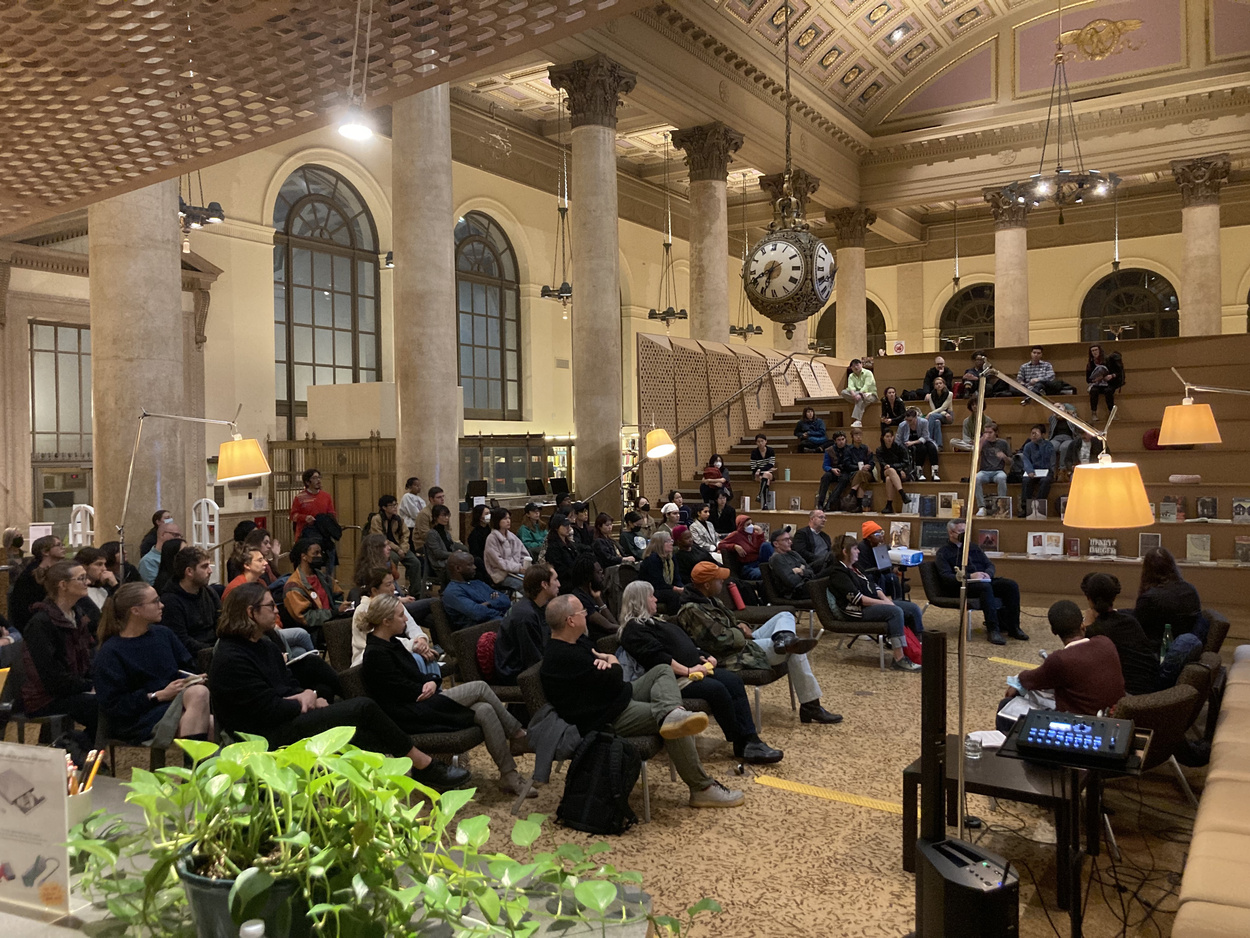
On Monday October 17, celebrated multimedia artist Camille Norment ︎︎︎ visited RISD for a conversation with Alex Chechile (Research Fellow, SRST) and Jess Myers (Assistant Professor, Architecture). This event was co-sponsored by Fleet Library, Studio for Research in Sound and Technology, and the Architecture Department.
